Planning a School Trip: Our Step-By-Step Guide
We can probably all agree that to experience learning while out in the world has a big impact. This on-the-spot learning is one of the best ways to ensure that concepts, skills and knowledge are retained. Planning a school trip is one of the most effective ways to introduce experiential learning to your students. A school trip not only cements learning in a way that kids will still be talking about it years later, it also makes that knowledge applicable to real situations. In other words, it turns knowledge that students just have (somewhere, deep down) into knowledge they can use .
But it’s all very well and good to talk about how great school tours are, but how in the world do you actually go about planning one? Where in the world, for that matter? It can seem like an immensely overwhelming task to think about planning a school trip. You might not even know where to start. Luckily, we’re going to make it easier for you. We’ve put together a step-by-step guide to help you get your next (or first!) tour underway.

Step one – the purpose of the school trip
First, you’ll need to figure out the basics. What’s the purpose of this tour? You might already take a particular subject, sport, or activity, which makes determining the focus easy. However, it is worth considering the particular areas you would hope to reinforce or improve upon with this tour. Think about your ideal outcomes, or skills you would like students to gain from this experience. Then it’s time to think about the destination/s, time of year, and duration of the tour. A tip from us here is to be sure to check the academic calendar, assignment periods and school events. It’s definitely worth making sure there are no clashes with other activities or events relevant to students. We have had complications in the past with students dropping out of tours because it clashed with their senior ball!
Step two – choose an educational travel partner
Your next step is to select an educational travel partner. Companies like Student Horizons are here to take all the minutiae of planning a school trip off your plate. You will be able to hand over over all of the organisation, admin, bookings and other details. Right away, the tour planning process becomes so much easier and less stressful for you. Of course, it is important to work with someone you like and trust. If you haven’t used an educational tour provider before, we suggest having a checklist of requirements to help you choose. These might include: support to students, teachers and parents, educational content and resources, industry experience, and crisis management support. Over the last seven years, Student Horizons has proudly cultivated strong working relationships with over a hundred schools across New Zealand and Australia. Our experience, attention to detail, safety and risk management systems and client care has led to extremely positive feedback and a high rate of repeat business.
Step three – building your itinerary
Now that you’ve decided what type of school trip you’re planning and selected a tour provider, it’s time to start building your itinerary! You will need to know your estimated group size, and budget per student. Student Horizons’ tours are bespoke and can be entirely customised to meet your needs. It’s up to you to choose, therefore, how many fixtures, performances, workshops or coaching sessions you want to include. This is generally a good place to start, as putting the key elements in place first will help determine where additional activities can fit in. It’s also good to think about sightseeing excursions, the type of accommodation you’d prefer, and how many teachers will be travelling on the tour. We recommend a minimum of one teacher for every ten students.
Step four – get tour approval
Finally, the last step is to get tour approval! Your school will have specific policies and processes that you need to comply with before booking a tour. Student Horizons will provide all necessary documents to help you secure the support of the principal and department heads.
Planning a school trip can be a long process. We always suggest starting to think about the details we’ve outlined above at least a year in advance. However, working with the right educational travel provider can reduce all the hassle of that year-long process to a mere handful of admin tasks. We would love to show you just how much easier the planning process could be with Student Horizons on board.
To find out more about how we support you, visit our teacher support page .
- Primary Hub
- Art & Design
- Design & Technology
- Health & Wellbeing
- Secondary Hub
- Citizenship
- Primary CPD
- Secondary CPD
- Book Awards
- All Products
- Primary Products
- Secondary Products
- School Trips
- Trip Directory
- Trips by Subject
- Trips by Type
- Trips by Region
- Submit a Trip Venue
Trending stories

Top results

- Plan A School Trip
School trips – The ultimate teacher guide
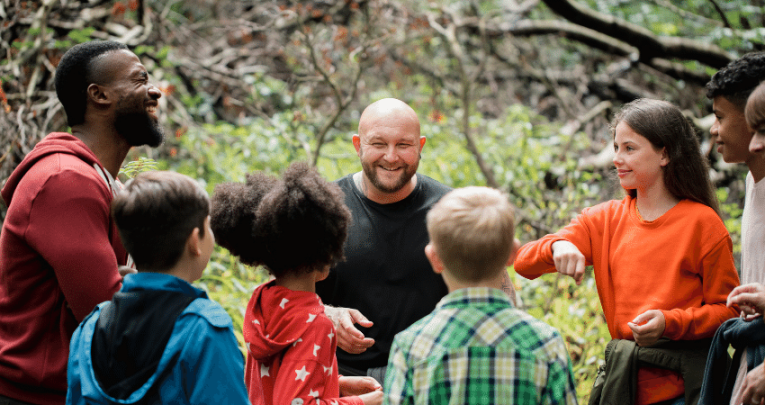
There’s lots to think about when organising and leading an educational excursion, but these pointers will help set you on the road to success…

Find the perfect school trip
Start planning school trips early, educational and learning value, the cost of school trips, helping parents budget for school trips, free uk school trips, risk assessments and school trips safety, school trips insurance, accredited providers of school trips, getting assistance from the school trip venue, inspection visits, adult to pupil ratios, preparing the children, make time for reflection, school trip ideas.
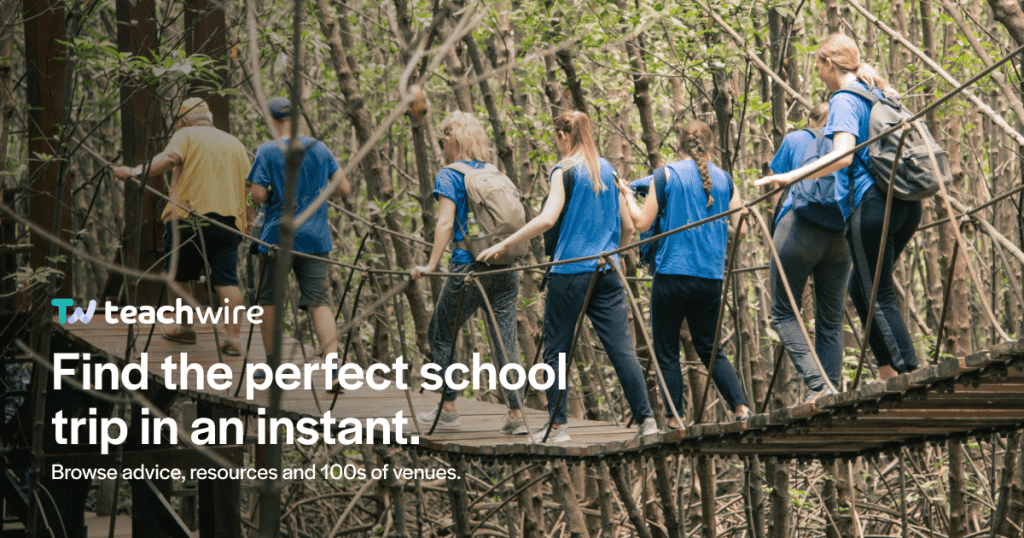
Find perfect school trips in an instant with our school trip finder . Explore school trips by subject , region , type or simply browse our extensive school trip directory until you find something your pupils would love.
It falls under the category of ‘common sense’, but in teaching, where time is often in short supply, it bears repeating: allowing adequate time for planning a school trip is essential, as rushed school trips , planned days or weeks before rather than months in advance, will be both a more stressful experience for you as organiser, and at risk of underperforming educationally.
One of the key findings of Ofsted’s 2008 Learning outside the classroom report was that learning outside the classroom (LOtC) was “most successful when it was an integral element of long-term curriculum planning and closely linked to classroom activities”.
Gill Harvey, chief executive of the School Travel Forum , says that many school trips don’t get beyond the planning stage because teachers “haven’t gauged parental interest and got approval from the headteacher first.”
Making an enquiry with school trips venues or providers should be “the last step in the process”, she continues.
As the Council for Learning Outside the Classroom (CLOtC) highlights in its guidance , “the objectives for [your] visit should be defined carefully and must relate closely to classroom work.”
In its 2008 report , Ofsted noted that, “Too many residential and other visits […] had learning objectives which were imprecisely defined”.
When thinking about educational school trips, headteacher Tracey Bowen stresses that its “vital to be clear about why you’re going. What’s your intention? What do you want to get out of it?”.
She continues: “We spend a phenomenal amount of time planning school trips, checking what the content of a workshop is, explaining what our needs are.”
It’s important to think carefully about where you choose to go – as Tracey points out: “You can get brochures through and think, ‘Oh, that looks great – we’ll go there!’, but unless you’re careful, you can end up thinking, ‘That’s not what it said on the tin!’.”
“Unless you’re careful you can end up thinking, ‘That’s not what it said on the tin!'”
More fundamentally, for a successful school trip, your choice of destination should be informed by your learning objectives .
The CLOtC advises that if your outcomes can be “successfully achieved in the grounds of your school, or within easy access in the local area, then it is unlikely that travelling for hours to reach a more distant venue will enhance the learning experience” – but of course there will be many instances in which an external provider located further afield will be essential.
Steve Craven, director of NST Travel Group, recommends being flexible with your travel dates, transport options, departure points and accommodation location to get the best price for school trips, and recommends not being afraid to ask for advice on making your financial resources stretch a little further.
Consider the length of your school trip, too – the longer the trip is, the more expensive it will be. If you’re going on a residential school trip, filling your itinerary with a mix of free and paid-for options will help to keep the cost down.
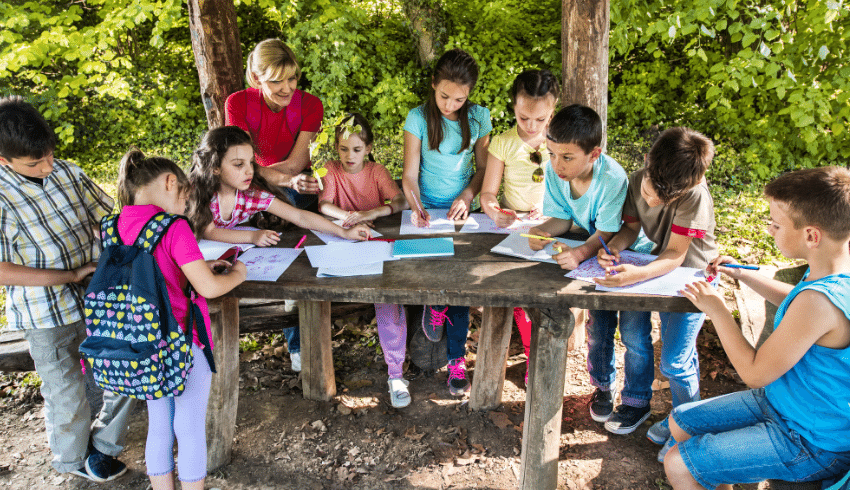
When it comes to the cost of transport, Sylvia Holland, a KS4 lead practitioner at Impington Village College and Impington International College who regularly organises MFL school trips abroad, says, “Since Brexit and the pandemic there has been a noticeable increase in the costs of flights, but being flexible with our travel dates has enabled us to benefit from the best prices available.”
Her school has also benefited from community and charity funding, government grants and school fundraising. She recommends looking into The Turing Scheme .

Schools usually take pride in offering an array of trips – but that may ring alarm bells for some parents, says Nikki Cunningham-Smith…
According to figures from Gingerbread, a national charity supporting one-parent families, lone-parent families are five times as likely to have an income of less than £200 per week. This makes it very difficult for them to cover the cost of school trips.
The cost-of-living crisis can’t help but loom large in this kind of conversation. And it’s not likely to be going away any time soon.
One demographic it hits particularly hard are, of course, parents of nursery and school-age children. The National Foundation for Educational Research recently found that over the past year, there have been significant increases in the numbers of pupils requiring additional welfare and financial support . This is simply so they can access basic learning, social and extracurricular provision.
As you’d expect, the financial pressures are greatest in special schools and the most disadvantaged mainstream schools. Special school senior leaders are reporting especially high increases in need for pupil welfare support (from 28% to 36%) and financial support (33% to 43%) over the last year.
Spikes in support
Households are now under strain when paying household bills. This is combined with food costs soaring to their highest point in 45 years. Plus there’s the impact of rising interest rates on mortgage repayments and rents. This has resulted in households everywhere having far less disposable income.
Many more households hence have less in the way of savings. They’re increasingly living pay cheque to pay cheque, affording little wriggle room for unexpected expenses. (Though one thing that hasn’t changed is the threshold for Pupil Premium in light of these developments, in a way that might enable more families to become eligible for it).
Because it’s not just children currently eligible for Pupil Premium who are receiving extra support. In 63% of secondary schools, leaders report that just over half of those pupils receiving additional support from their school weren’t PP-eligible.
The same could be said for around 42% of special schools. This suggests that the current eligibility criteria for free school meals may be too restrictive.
SEN children
One parent of a SEN child once highlighted to me how difficult it can be to access trips due to the additional costs incurred from having a pupil on the SEND register. This is something other parents and teaching staff may not realise.
The example she gave me was having to buy three sets of ear defenders priced at £30 each at the start of a school year. This is one cost that not all parents will face.
Another parent told me how she had previously tried to keep her daughter off school in the week leading up to one trip. This was specifically so that she’d miss the building buzz and excitement, and hence not know the extent to which she’d be missing out because the parent couldn’t afford to pay.
In a post-pandemic climate, where pupil attendance is still giving us significant causes for concern , how can we tackle these anxieties that seem so closely associated with paying for school trips?
Parental finances
One thing we can do is provide parents with clear timetables at the start of the academic year that record proposed trips and upcoming costs. This help with parents’ budgeting.
If your capacity extends to it, you could even look into setting up financial literacy support sessions for any parents needing to improve their ability at budgeting successfully.
Where possible, look to provide a monthly payment system. Here, parents regularly deposit small sums in a dedicated account, before then making withdrawals once a trip has been arranged.
There’s scope to subsidise the trips themselves using Pupil Premium and/or SEND funding. Or you can approach your PTA about supporting funded places.
A good way of getting parents to engage can be to research any local financial support organisations. Share details of these in your school newsletters and parental forums.
The onus is on schools to embed these kinds of practices into their daily routines. If a school can demonstrate that their parents’ financial status is an area they’re sensitive to, this will help build a sense of openness.
Because we all want schools to be places where no child need miss out on exceptional learning experiences – whatever their socioeconomic status.
Support for parents
- Consider helping parents access financial literacy workshops from a local support organisation. Or provide them yourself in after-school sessions
- Ensure that parents feel able to inform you in the event of financial concerns or shocks that might be affecting them and their families
- Engage with charities that might be able to offer financial support to struggling families. Pass on any useful advice or guidance
- Some LAs can provide support with additional school expenses in ‘exceptional circumstances’
Nikki Cunningham-Smith is an assistant headteacher based in Gloucestershire
Of course, you don’t always need to travel far to find an appropriate setting for your school trip. Staying local helps you save on travelling time and costs but also helps children to engage with the local history of their community. Check out a great range of free school trips here .
The very thought of being responsible for the wellbeing of 30+ unleashed kids can be enough to put teachers off school trips for life, but there has never been more guidance available for those responsible for carrying out risk assessments.
So what exactly is a school trip risk assessment?
According to the Association of Teachers and Lecturers, a risk assessment is “an essential element of any school trip – not to mention a legal requirement.”
The DfE’s ‘ Health and safety on educational visits’ resource , which draws upon the work of both the CLOtC and the Outdoor Education Advisers’ Panel (OEAP) , is a useful starting point.
“If you are the group leader, always be prepared to trust your own judgement”, advises the NEU.
“If you think that to continue an activity or a school trip would compromise the health and safety of the group, you have the authority and responsibility to cancel it.
“The teacher/group leader is expected to apply the same standard of care as would a ‘reasonable parent’ acting within a range of reasonable responses.”
If you need help with your risk assessment, each local authority has an outdoor education advisor who is there to help and support you.
It’s vital that all staff and pupils are fully and correctly insured for your school trip. NEU says that it’s important to “study insurance policies carefully – they should include cover for possible personal liability and ‘third party insurance’ for all responsible adults.
“Group leaders must ensure that they do nothing to jeopardise their insurance cover.
“When negligence is alleged, the case will nearly always be taken against the employer, who is vicariously liable and carries insurance for third-party liability.
“Claims are seldom brought against individuals and, if individual employees are sued, they may bring in their employer as a co-defendant.
“Some employers provide a specific indemnity which protects staff against any liability if a claim is made against them personally.
“The courts do not rush to find schools and teachers negligent, they accept that accidents do happen.
“However, schools must demonstrate that they have taken reasonable steps to plan school trips thoroughly and assess and control risks, and individual teachers must demonstrate that their responses to an incident were within the range of the reasonable responses of a parent.”
It’s easy to underestimate the time and energy needed to organise a school trip, especially if you’re taking a ‘DIY’ approach and arranging all the separate elements yourself.
Using an accredited provider or tour company gives you financial protection in the form of ABTA or ATOL bonding, but another benefit, as Gill Harvey from School Travel Forum explains, is that reputable tour companies will have “first-hand knowledge of your destination and a good ‘bank’ of suppliers from which to choose appropriate services for your school trip, and can offer 24-hour help and support in the unlikely event that anything should happen – from flight delays to last minute cancellations.”
Using an accredited provider can save you time when it comes to paperwork and “gives you peace of mind that the elements of the school trip have all been carefully checked on your behalf”, according to Gill.
Jamie Walls, product development and delivery manager at YHA , recommends looking in particular for the Learning Outside the Classroom (LOtC) Quality Badge .
He says: “It’s the only nationally recognised indicator of good quality educational provision and effective risk management.
“Having this quality standard means the red tape associated with a school trip is reduced.”
If you can’t quite find what you’re looking for when browsing school trip ideas, don’t be afraid to ask venues for assistance, advises deputy headteacher Grace Shaw.
Many museums, galleries, zoos and the like are more than willing to be flexible.
Grace says: “Rather than picking off the menu, you can tailor-make what you need. Museums in particular are usually very happy to adapt their offer, because they’re so thrilled to share what they’ve got to share.”
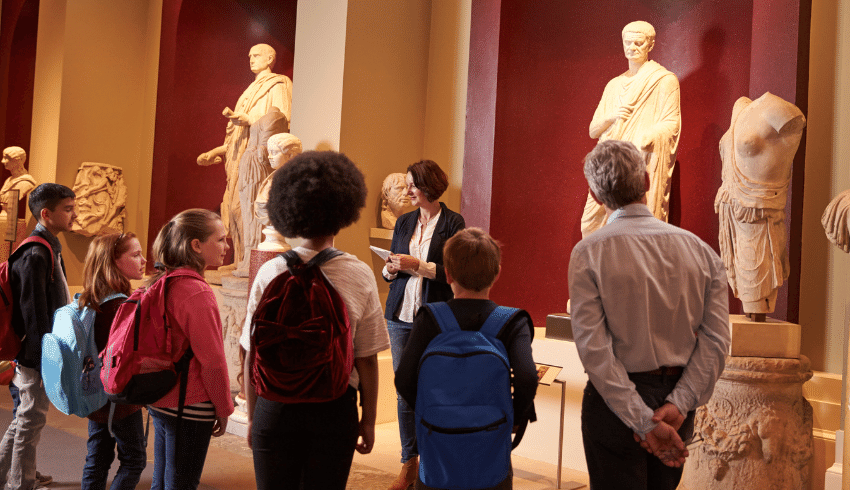
On school trips where venue staff are taking the lead in guiding students, don’t be tempted to switch off. Grace says: “Some teachers think, ‘I’ll get to my workshop, then the workshop leader will have the children and I’ll get them back at the end.’
“Actually, you need to work with staff, because while they’re experts in their field, you’re the expert in your children. You’ve got to develop a partnership.”
Gill Harvey adds that to maximise the positive impact of your trip and help gain approval from parents and the school to run the trip in the first place, ask your operator how they can support you to promote the learning benefits of the trip to your stakeholders.
Planning a school trip checklist
The Association of Teachers and Lecturers lays out the following checklist for planning a school trip.
- Obtain approval from your school and the local authority, if applicable
- Undertake or obtain a risk assessment
- Detail staffing, supervision and training needs
- Ensure that the trip is adequately insured
- Plan transport
- Obtain written parental consent for medical treatment and brief parents
- Conduct an exploratory visit
- Prepare contingency and emergency arrangements
- Brief staff in preparation for the trip, including responsibilities and emergency arrangements
- Prepare children for the trip discussing arrangements, expectations and safety
Making time to head to your destination ahead of the trip proper can help clarify issues as trivial as where you need to park, as well as more important issues relating to health and safety.
In its National Guidance, the OEAP notes that while accreditations and other sources of information provide essential assurances, “they are not a substitute for a preliminary visit and being able to clarify issues face to face.”
Jamie Walls from YHA says that by arranging a pre-visit, group leaders can get a feel for the residential destination. “They can also talk to staff, get assistance with any paperwork necessary and see the activities first-hand,” he says.
If you’re planning a school trip residential, a visit will allow you to assess catering and sleeping arrangements. “Ensure that your groups have dedicated rooms and that the catering is not only offered but of good quality, with any dietary requirements catered for too”, suggests Jamie.
According to NEU, there’s no precise formula for the ratio of adults required on a school trip. “It’s down to reasonable judgement”, it explains.
“You should take into account the nature of the expedition, and the number, age and aptitudes of the children. School trips which involve hazardous activities require more adults for a group.”
“There’s no precise formula for the ratio of adults required on a school trip”
Many venues will state their own ratios for school trips on their website.
Government guidance on ratios
On its website, the Health and Safety Executive states that pupil to staff ratios for school trips are not prescribed in law.
It states that “those planning a school trip, on the basis of risk assessment, should decide the ratios, taking into account the activity to be undertaken and the age and maturity of the pupils.”
Before embarking on your trip, set out your expectations about behaviour and lay out your learning outcomes and how they will be used in the following weeks.
It’s also important to set out to children what will happen on their school trip – emphasising the times when they’ll need to focus and the opportunities for free time available.
Giving children a clear idea of what will happen on your trip and when can help to alleviate anxieties about the unknown, according to experts at PAC-UK .
They propose providing a timetable of the trip, breaking it down into its component elements, the more visual the better.
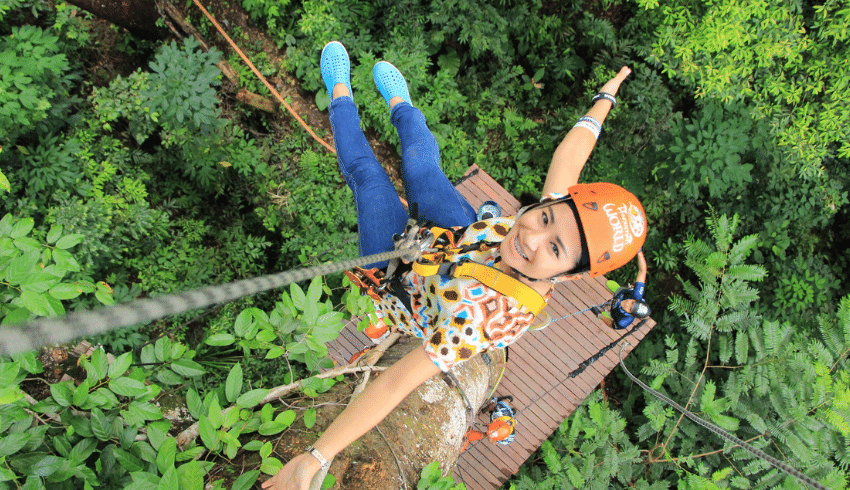
Other ways to help anxious children include:
- Looking at images or the website of your destination
- Arranging a pre-visit with a caregiver, if possible
- Giving pupils the chance to discuss any worries with a key person in school
Read more advice from PAC-UK about reducing trip trauma .
Another important aspect of preparing children for a trip is making sure that they already have a basic knowledge of the topic you’re looking to focus on.
Teacher Sylvia Holland says that many school trip venues “have a plethora of resources available online that are designed to support learning in the classroom, for use either prior to or after your visit.
“Use videos to set the scene and excite pupils ahead of their trip or use worksheets to help with follow-up lesson planning and allow them to apply new-found skills.”
Making the most of a school trip isn’t just about ensuring its smooth-running on the day – the point, after all, is for the visit to have a measurable positive benefit on students’ learning when they return to the classroom.
As such, it’s equally important to give due consideration to how you plan to continue the learning – in some cases post-visit resources may be available to help you – and to reflect, in partnership with students, on the experience: evaluate its effectiveness in terms of improving educational outcomes, and learn lessons for next time.
Whether you’re looking for help planning a primary school trip, a secondary school trip, a free school trip or just something a little out-of-the-ordinary, we’ve got you covered with this mega list of school trip ideas!
JUMP TO A SECTION:
Pgl school trips, school trips in london.
- Science trips
Animal attractions
- New York City
- History trips
Theme parks and attractions
- Theatre and drama trips
- Outdoor activity day trips
Residential trips for schools
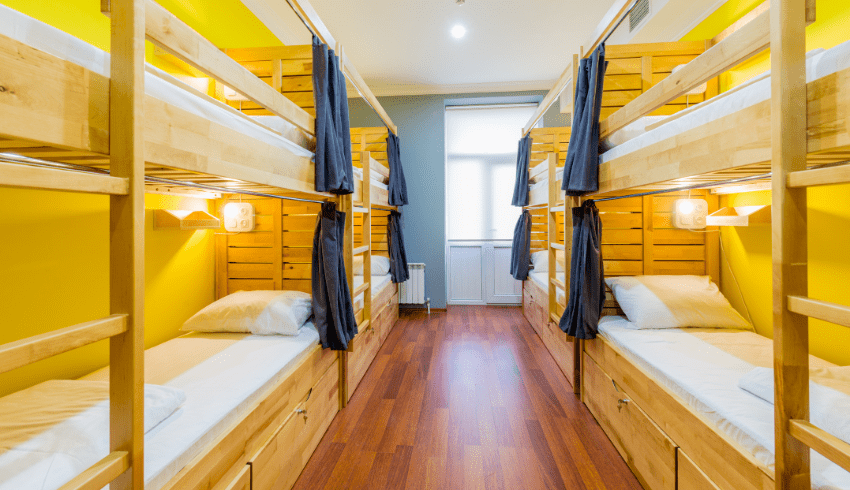
Manor House & Ashbury Hotels
The Manor House & Ashbury Hotels , in the heart of Devon, offer a fantastic choice of over 50 sport, craft, leisure and spa activities.
A dedicated schools coordinator can create a bespoke programme to meet your group’s individual requirements, plus all equipment and use of its fantastic facilities is included in the price.
All sessions are delivered by experienced tutors with a child-led approach. With workshops, accommodation, full-board dining and generous group discounts you’re guaranteed a great value break that ticks every box.
Rock UK has been working with schools for nearly 100 years. Its four nationwide activity centres offer tailor-made programmes of challenging activities to build resilience, confidence and independence – you can choose from over 40 instructed activities, from watersports to abseiling, bush craft to archery and much more.
All centres hold the LOtC quality badge, testament to the company’s high standards for safety, activity provision and learning outcomes.
Bursary places are available for children who would otherwise be left behind.
Ringsfield Hall
Ringsfield Hall is an innovative centre for outdoor learning and nature connection, with 14.5 acres of woods, meadow and a homely Victorian house.
On offer are crafted forest school and earth education programmes, infused with imagination, drama and magic, all delivered by experienced practitioners with a child-led and eco-therapeutic approach.
You can opt for a day visit or residentials, with facilities including an art barn, music studio and sports pitches.
Other highlights include farm animals, fantastic home-cooked food and the freedom to explore!
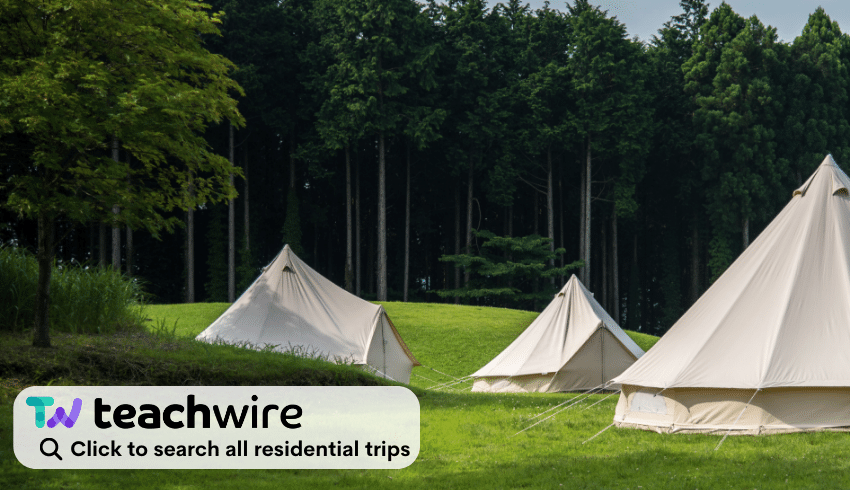
Go Wild Adventures
Bring your students out of the classroom and immerse them in the great outdoors at Go Wild Adventures .
Go Wild’s philosophy is that great things can happen in young people’s lives when their horizons are widened, and its team will work to help you achieve this.
Pupils are invited to embrace living under canvas and inspired to explore the world around them.
With campfires, woodlands, fields and an on-site field study classroom on offer, Go Wild can help you put together a package to suit your specific needs.
Cumulus Outdoors
Cumulus offers action-packed residential programmes on the stunning Jurassic coast in Dorset, tailored to your requirements and fully supported by a team who will guide you every step of the way.
You can choose either the exclusive Tented Village option for an authentic outdoor experience – featuring 24/7 pastoral care, spacious tents, a large communal tipi and dedicated teachers area – or the Residential Centre for dormitory accommodation, plus dedicated teacher and classroom facilities.
Programmes can include coasteering, a visit to a waterpark, a mud run, kayaking, mackerel fishing, rock climbing and abseiling, and more.
YHA School Trips
Whatever your subject and whatever your desired learning objectives, when you choose YHA School Trips you can be assured of a safe, fulfilling and unforgettable residential that will stay with your pupils long after their coach journey home.
What’s more, as a leading youth charity, YHA believes that every child should have the same chance to discover, explore and grow – to that end it creates unique opportunities for young people from all backgrounds to experience amazing places, share extraordinary journeys and take a different path through life.
TYF has been running for over 30 years, delivering adventure residential school trips for schools. Pupils are taken out of the confines of the classroom and immersed in adventurous and experiential learning in the natural world.
Its core activities are coasteering (which it pioneered in 1986), surfing, climbing and abseiling, and kayaking.
The programmes link adventure and problem solving, helping pupils to find meaning and inspiration whilst building the ‘backpack skills’ for a lifetime of adventurous play.
Mill on the Brue
Mill on the Brue Outdoor Activity Centre boasts over 40 activities in the idyllic river valley in Bruton, Somerset.
Each programme is individually written in consultation with the party leader, who can choose activities based around team-building, problem-solving, high energy or just plain fun, with experienced and qualified instructors who stay with the group throughout the week.
Food is also an important part of the trip, with child-friendly meals and all diets catered for.
Children are taught about the environment and teamwork, and gain a comprehension of healthy living and life skills.
The School Journey Association
The School Journey Association’ s activity school trips are suitable for all age groups and are a fantastic way to motivate pupils, whilst teaching them independence, self-belief and many other important life skills.
They offer both day and residential school trips to accredited activity centres throughout the UK and France, as well as visits to Belgium and Spain.
NST has been creating tours that inspire and educate children for more than 50 years. It chooses its destinations with school groups in mind. Safe, secure accommodation options and a range of engaging visits provide an ideal introduction to the world outside the classroom.
It’s the travel company of choice for over 35,000 group leaders, and NST is committed to doing its absolute best to provide schools with the experience and support they need to create school trips pupils will remember long after they return to the classroom.
Dunfield House
A proud LOtC-accredited provider, Dunfield House offers an outstanding residential experience – a place to call home where students can improve their confidence, resilience, wellbeing and life skills.
Its friendly team offer a personal service, with 24/7 onsite managers, three-star accommodation and healthy, wholesome meals with unlimited refreshments and biscuits.
Varied lesson plans, developed by teachers, are available for self-directed learning.
Dunfield caters for groups of 30–95, offering sole use of the house and/or stables accommodation.
Most importantly, it offers a sanctuary where young people develop their true potential, taking memories and new skills back to the classroom.
The Outward Bound Trust
As an educational charity, the Outward Bound Trust ’s mission is to make its residential programmes available to as many young people as possible.
With the philosophy that money shouldn’t stand in the way of opportunity and that everyone can achieve more than they think they can, it raises funds thanks to the generosity of donors, its fundraising events and early careers development programmes.
The trust puts this towards appropriate funding for schools, colleges and youth groups.
UKSA specialises in introducing people of all ages to the great outdoors through watersports and sailing.
Its water-based activities are a great way to build confidence, teamwork and resilience. On offer are a variety of disciplines, from dinghy sailing and kayaking, to windsurfing and standup paddleboarding.
Team building and multi-activity programmes are also available. UKSA’s 3.5-acre fully residential campus is based in Cowes, Isle of Wight – just a short hop over from Southampton, Portsmouth or Lymington.
There are regular complementary preview weekends for anyone who wishes to experience what’s on offer, first hand.
YMCA Lakeside
YMCA Lakeside is one of the largest and most scenic outdoor education centres in the UK. Set on the shores of Lake Windermere, this iconic centre has been hosting school residentials and transforming young lives for over 70 years.
Its state-of-the-art schools facility, opened in 2019, created an additional 200 beds and more opportunities to provide outstanding learning outside the classroom activities.
Belchamps Scout Activity Centre
If you’re looking for something different for your next educational venture outside the school grounds, try this activity centre set amid 30 acres of camping fields in the Essex countryside.
The site includes a choice of five indoor accommodations and two tented villages with a cooking hut, and a range of different experiences to try.
Available activities include abseiling, bridge building, bushcraft days (which involve fire lighting and shelter building) and indoor/outdoor climbing, among many others.
Essex Outdoors
Essex Outdoors is situated across four stunning locations in Essex, ideally located to provide an outstanding school trips experience.
Whether you’re looking for a residential stay or a day trip, its fully trained and dedicated staff will ensure that your students develop lifelong memories.
With over 40 different activities on offer – from archery to crabbing, quad bikes to zip wires – there’s certain to be something that will engage and inspire your pupils.
The wide range of accommodation options, including residential blocks, pods, cabins and tents, means you will be able to plan a trip that’s exactly what you’re looking for.
Active Escape
Active Escape is based in stunning North Devon and provides a variety of stimulating and unique experiences, including coasteering, stand-up paddleboarding, rafting, party SUPs and its very own ‘Adventure Challenge’.
All of the activities on offer encourage team-building, boost self-confidence and fulfill a number of educational purposes too.
You can choose to spend half a day with Active Escape or a whole week, thanks to a campsite equipped with bell tents for your students.
Conway Centres
With four locations across north Wales and Cheshire, Conway Centres are the perfect location for schools to come together and make life-long memories.
Conway Centres combines real-life outdoor adventure with unique creative and performing arts activities, which increase achievement and inspire individuals.
Whether children and young people are canoeing on the private dock in Anglesey (with the stunning Snowdonia mountain range as a backdrop), taking centre stage in the outdoor woodland theatre or exploring all that Delamere forest has to offer, there’s something to inspire everyone at Conway Centres.
Brathay Trust
Situated in the stunning Lake District National Park, Brathay Hall is home to Brathay Trust . Each year the site hosts hundreds of young people on immersive, memorable and life-changing residential programmes that promote resilience, leadership and wellbeing.
A Brathay residential programme offers a powerful learning experience in an inspiring location, using outdoor activities and a creative approach to enable a wide range of outcomes to be achieved.
As the director of services at Aspired Futures put it, “The changes we saw in young people on the residential would take us a year to achieve in our community setting.”
Epic Outdoors
Epic Outdoors is an adventure activities licensing service and Duke of Edinburgh approved adventure provider specialising in developing personal and group skills through multi activity programmes.
It currently delivers activities in the Lake District, North Wales and the Peak District – everything from gorge walking, canoe and climbing to mindfulness, wild camping and traditional storytelling – to over 2,500 young people each year.
Schools receive full support, from pre-visits for staff, students and parents to curriculum blending and post residential review trips – and most importantly, genuine adventures built around learning outcomes.
A Kingswood adventure brings out the potential in every child. With award-winning programmes focused on building confidence, boosting resilience and developing key life skills, your class will enjoy a breath of fresh air, a taste of independence and make memories to last a lifetime.
Choose from 11 adventure centres across the UK, where the Kingswood team will deliver activities from abseiling to zip wires, while providing learning outcomes and so much more.
Introduced in 2022, the new unique Confidence Tracker also helps you to measure and demonstrate the outcome of your trip.
Plus, you’ll be able to explore pre- and post-trip activities from Kingswood’s partners, Enrich Education, to help extend the value of your trip.
Oaker Wood Leisure
Oaker Wood Leisure Adventure Centre in Herefordshire specialises in school activity residentials for groups of up to 120 students.
Accommodation comes in the form of wooden ‘glamping’ pods based in glamping villages for the exclusive use of each school group, complete with campfire, barbecue hut, kitchen and dining facilities, showers and toilets.
On-site activities include team-building, high ropes, a zip wire, quick jump, paintball, raft-building, quad trekking and more.
You can book residentials for between one and four nights. Day trips and in-school team-building days also available.
Llain Activity Centre
Llain Activity Centre is a short drive from New Quay, West Wales and a short walk to the secluded Cei Bach beach.
The nine-acre former farm is packed with various accommodation options, a one-and-a-half-acre lake and a one-acre mud assault course as well as a climbing tower, high ropes and zip line.
Having specialised in residential school trips for over 20 years, the centre prides itself on its pre-visit communication and parent presentations.
Scout Adventures
With over 100 years’ experience in character education, Scout Adventures has helped thousands of young people enjoy a range of adventure activities while learning new skills and becoming active citizens of the future.
At Scout Adventures it’s all about helping young people to reach their potential – understanding that learning away can have a powerful, positive impact on young people’s academic achievement.
With its expertise in informal outdoor learning, and world famous Scouting heritage and values, Scout Adventures has inspired generations of young people to reach their potential and learn skills for life.
It also provides free resources to schools.
Calvert Trust Exmoor
Calvert Trust Exmoor offers a unique opportunity for students of any age and any disability to experience exciting, challenging and enjoyable adventure activities in a safe, accessible environment.
On a residential break, children can overcome challenges, build confidence and enrich their lives through improved self-esteem and a sense of achievement.
The Trust also promotes physical activity, helps with social interaction and gives pupils and staff a shared point of reference that can aid engagement when back in the classroom.
It works with numerous UK educational establishments, both specialist and mainstream, and can tailor breaks to meet your needs.
PGL has been successfully delivering high-quality learning experiences for 65 years, amassing a wealth of experience within outdoor education.
As the largest outdoor learning provider in the UK, over 350,000 young people benefit from a PGL trip each year.
With 15 centres across the UK, most schools are no more than two hours away from their next PGL adventure. There are also four centres in France and a ski programme in Europe.
Residential school trips offer unforgettable experiences at the well-equipped adventure centres and with PGL, you get round-the-clock support from experienced instructors and a dedicated member of staff to look after you and your group during your stay.
BACK TO TRIP IDEAS MENU

SEA LIFE London
Inspirational for all ages, SEA LIFE London offers pupils the opportunity to explore the creatures that live in our rivers and oceans.
They will walk in awe through Pacific Ocean tunnels, tropical rainforests and an Antarctic penguin point.
Younger children’s curiosity will be piqued as they become top rock pool explorers while older students can observe, first hand, ecosystems, environmental changes, evolution and marine conservation.
Pupils will learn about the different oceans around the world, explore creature characteristics and differences in their adaptations to survive, and compare and contrast the life stages of mammals, amphibians, insects and birds.
Tour for Muggles
Show your students the magical side of London with this award-winning Harry Potter tour . This is a really engaging way for students to delve into the Harry Potter series while learning about London’s rich history.
The Tour for Muggles team have worked with many school groups and their excellent guides will make it a memorable experience for you all.
The team reserves the best prices for school groups. Teachers can attend for free. Multi-award winner of the TripAdvisor Award of Excellence and Scoot Awards, this tour is truly Potterific!
Imperial War Museum London
IWM London tells the story of conflict from 1914 to the present day. School groups can choose to take part in one of IWM’s learning sessions with an expert educator, or opt to explore the museum on a self-guided visit. The Documentary Challenge gives students the chance to explore IWM’s galleries, find objects and tell the stories the world needs to hear by making short documentaries.
We Were There sessions provide a unique opportunity to meet veterans who have all experienced conflict first-hand.
Holocaust Learning sessions support students as they learn about one of the most difficult subjects in history. New technology guides pupils through IWM’s Holocaust Galleries, critically considering why the Holocaust happened, why we study it, and what it means in our world today.

Jewish Museum
At Jewish Museum London , students will learn about the history of Judaism and the culture of the Jewish community here in Britain.
All workshops are interactive and, depending on what you have planned, students might handle precious objects with important and personal stories, watch films, listen to stories and sound clips, or participate in craft activities. The museum also provides the opportunity for students to hear from a Holocaust survivor speaker who will tell their personal story.
The Living Communities gallery offers a space for craft activities and group work. Students may even get the chance to practise calligraphy skills and learn some Hebrew.
Asking questions is an important part of your visit – The Jewish Museum London offers a safe space to ask anything about Judaism or Jewish people that you ever wanted to know.
KidZania London
Visit KidZania London in Westfield, Shepherd’s Bush and your pupils will experience experiential learning at its best. KidZania is the indoor city for kids with endless, exciting, real-life career activities.
The range of activities available is designed to link back to the curriculum across PSHE, literacy and STEM.
KidZania also runs unique educational events throughout the year to bring careers learning to life. These include Parliament Week, STEM Week and its Careers Fair.
The Postal Museum
The Postal Museum explores how the post has changed the way we live. Interactive sessions explore communication stories across the curriculum for all key stages. Meanwhile, its exhibition galleries are jam-packed with intriguing objects charting 500 years of social history.
Pupils can hop aboard Mail Rail, travelling on a tiny train through the tunnels of London’s hidden postal railway and testing their engineering ingenuity in the original train depot.
Younger visitors can learn through play in Sorted! and have sack loads of fun delivering the post in the mini mail town.
Lee Valley Regional Park
Help your class to experience a range of outdoor adventure activities with a trip to a 10,000 acre classroom in Lee Valley Regional Park , spanning London, Essex and Hertfordshire.
The learning service provides real-word experience of topics on the KS1 and KS2 curriculum. Immerse pupils in the history of the Stone Age, help them discover the natural world, or teach mindfulness practices in the outdoors.
Looking for something more? The forest school activity programme is available in six-week blocks for children to develop physical and social skills. In-school programmes are also available.
Science trips for schools

Brooklands Museum
Brooklands Museum is a 32-acre site steeped in history and linked with world-famous achievements.
Its collections of historic cars, aircraft, motorcycles, bicycles and artefacts tell fascinating and inspirational stories.
From its creation in 1907, through two World Wars and for most of the 20th century, Brooklands was a centre for breaking speed records, motor racing and advances in science and technology. Thousands of aircraft were tested and flown.
Today, students can:
- sit inside real aircraft
- drive a Formula 1 simulator around Brooklands race track
- design their own aircraft
- step on board a real Concorde
Magna Science Adventure Centre
Magna Science Adventure Centre is a hands-on experience with interactive exhibits and fascinating displays.
Pupils can explore the wonders of science, technology and industrial history in four pavilions: Fire, Water, Earth and Air.
These are crammed with over 100 exciting activities. Invite your group to discover the amazing nature of water, operate real diggers, witness a fire tornado and even explode a rock face.
There’s also a chance to discover South Yorkshire & North East England’s steel-making heritage in ‘The Big Melt’ experience. This is a thunderous pyrotechnic show.
Kent Wildlife Trust
Kent Wildlife Trust is the leading wildlife charity in Kent. Its aim is to bring people closer to nature and ensure wildlife is protected and restored in the future.
Activities enable young people to connect with nature and learn outside the classroom.
Learners will explore different habitats, learn new skills and have fun while meeting curriculum objectives.
Expert tutors are on hand to deliver a wide range of interactive sessions at sites across Kent. These range from pond dipping to forest school programmes.
Staff are committed to ensuring high quality provision and have been awarded the Learning Outside the Classroom quality badge.

The Young People’s Trust for the Environment (YPTE) is a charity set up to support children’s understanding of the natural world.
Working with young people, schools and parents, it aims to give children a real awareness of environmental issues. These include:
- climate change
- deforestation
- the plight of endangered flora and fauna
Your pupils need to know all of the facts in order to make their own decisions about how they want to shape their world for the future. The YPTE helps to equip them with the knowledge they need.
The Field Studies Council
The Field Studies Council (FSC) is the UK’s leading charity sector provider of outdoor environmental education.
Much of its work is based at one of its 17 field centres. These have an international reputation for high standards of primary school, secondary school and university teaching by expert staff and associated facilities.
A broad range of courses are available, from fieldwork residentials and adventure school trips to one-day experiences. These Field Studies Council courses immerse pupils in the natural world, taking in its sights, sounds and smells by bringing subjects to life in the outdoor classroom.
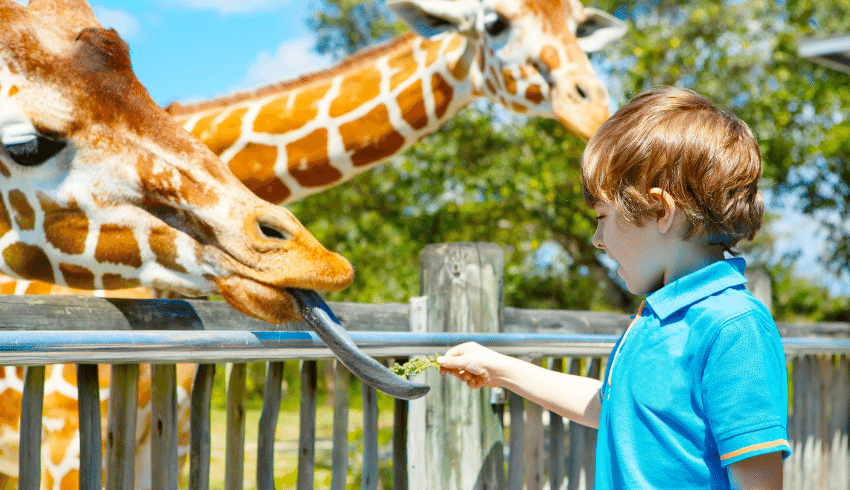
Godstone Farm
Godstone Farm opened its doors 40 years ago as an educational attraction for school children. Over the years it has developed into the farm countless visitors enjoy today.
Its schools programme has been designed to complement the statutory framework for the Early Years Foundation Stages and both the KS1 and 2 programmes of study, mixing in a whole heap of fun.
Children with SEND are welcomed, with semi-structured visits on offer.
Stratford-upon-Avon Butterfly Farm
A visit to Stratford-upon-Avon Butterfly Farm offers an excellent opportunity for children of all ages and abilities to become jungle explorers and learn about rainforest environments. They can also learn about the life cycle of a butterfly, and Mayans KS2 topics.
KS1 and 2 curriculum subjects are covered, with all tours tailored to meet your group’s needs.
Tours include an introductory talk and a ‘Meet the Mini-Beast’ handling session.
With plenty of hands-on, close observation and activity, this is an immersive and educational day out for your class.
Cotswold Wildlife Park & Gardens
From art to geography, science to literacy, whether you want an educational talk for your pupils or are just coming for a visit, Cotswold Wildlife Park has plenty to offer.
Home to over 260 different animal species, and comprising 120 acres of stunning gardens and parkland, it is the perfect place to bring the National Curriculum to life.
Your pupils can get eye to eye with giraffes, watch rhinos graze on the manor house lawns, walk with lemurs, take a ride on Bella the train or explore the adventure playground.
Free coach parking is available.
West Midland Safari Park
Located in Worcestershire, West Midland Safari Park has been welcoming educational groups for over 40 years. And with over 140 species of amazing animals on show, pupils can immerse themselves in a truly unique learning environment.
In 2017 the park’s purpose-built Safari Academy opened. This is a sustainable, state-of-the-art education centre, dedicated to providing learning opportunities for all ages.
A variety of educational sessions are on offer to complement the curriculum. These are delivered by an experienced education team who aim to inspire a future generation of conservationists.
Monkey World
Whether your pupils are learning about primate rescue work, the impact of deforestation or how woolly monkey use their tails, Monkey World ’s experienced education team can enhance your trip and support learning in the classroom.
As well as curriculum-linked sessions and workbooks, Monkey World offers visitors the chance to see over 250 monkeys and apes. This includes the largest group of chimpanzees outside of Africa, Europe’s only orangutan crèche and a breeding group of woolly monkeys – all in one day!
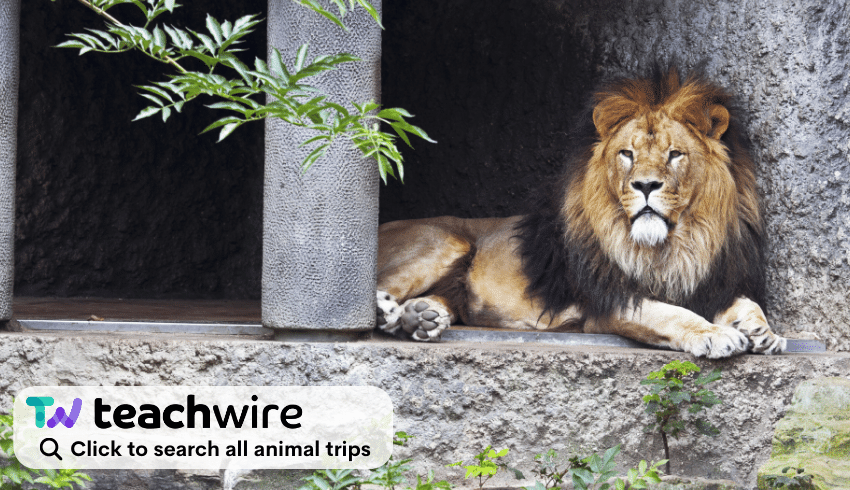
Amazona Zoo
Amazona Zoo in Cromer, Norfolk, is home to over 200 animals from tropical South America. These include:
The zoo features a 30-foot yurt for viewing educational films and other learning activities; an expansive outdoor play area, Rainforest Springs, with two large jumping pillows; and a spacious, well-equipped indoor play area, Jungle Tumbles.
There are opportunities for visitors to see the animals being fed, meet the zookeepers and learn about the history of South America and the rainforest.
Longleat is home to a wide range of attractions, so can easily tie in with a variety of topics, act as a case study, or be the inspirational starting point to a project.
Science and history have intrinsically strong connections but Longleat also presents wonderful opportunities for subjects such as English, maths, art and design. These can be given a real-life context.
There’s a huge selection of workshops and resources, for EYFS through to KS4+. Longleat is committed to continuously improving through expanding their variety of activities on offer.
Colchester Zoo
Colchester Zoo has an award-winning education programme and offers free sessions to support many subjects across the curriculum.
As well as covering traditional science and geography concepts such as adaptations and conservation, it also extends to English debating skills, art, maths and wildlife forensics. These support curriculum areas not traditionally associated with a zoo visit.
Schools looking for a general zoo visit are also very welcome to attend and use any of the zoo’s free online resources to focus self-guided or group learning.
Paignton Zoo
Paignton Zoo in Devon features 2,500 animals across 80 acres of natural habitat.
It has a comprehensive education offering to tempt schools. Primary students can access a range of interactive, curriculum-linked workshops. These take place in themed classrooms containing a host of artefacts and specimens.
Options include Evolution, Endangered animals and conservation, and habitats and adaptations. Qualified teaching staff will deliver these.
The team can also help visiting teachers to develop an itinerary for their visit. This can span a wide range of subjects, including maths, art, English, geography, and more.
The Deep is home to 3,500 fish and welcomes over 30,000 students every year to its purpose-built Learning Centre.
Start your amazing aquarium experience with the breath-taking coral reef in the Lagoon and some impressively large sharks in Endless Ocean. Or take a look at the creatures of the Amazon in the Flooded Forest.
A team of experienced in-house teachers deliver workshops, presentations and hands-on activities to school groups. They cover a wide selection of topics, including:
- citizenship
- customer care
- travel and tourism.
Flamingo Land Resort
Flamingo Land in North Yorkshire offers a great day out for school students. Your group will be able to enjoy the thrills of amazing theme park rides and explore an award-winning animal collection.
They can tour the zoo and attend keeper talks. These provide fascinating information about a variety of animals, including:
- Sumatran tigers
- African lions
- Black and white rhinoceroses
Business studies students can also take the opportunity to learn how a major leisure attraction operates, with information on a range of topics covering HR, customer services, finance and marketing.
National Marine Aquarium
The National Marine Aquarium is the largest public aquarium in the UK. It offers an amazing aquarium experience for more than 300,000 visitors per year (including 30,000 school students).
Its range of exhibits features marine animals from near and far. There are zones dedicated to the Atlantic Ocean, the Great Barrier Reef and Plymouth Sound.
Of particular interest will be JustAddH2O, the aquarium’s award-winning Learning Space. Its dedicated Discovery & Learning team operate in partnership with other education experts to provide a continuously developing programme that supports all teachers, from Foundation Stage to university and beyond.
Wingham Wildlife Park
There’s not an animal-based education destination in Kent that can offer more variety than Wingham Wildlife Park . At the park you’ll find:
- Over 170 species
- 190 talk topics. This includes everything from individual species to recycling, palm oil, dinosaurs, reptiles, invertebrates, nocturnal animals, birds and much more
- Pre-designed itineraries
- An outdoor play area
- Free lunch lockers
- Plenty of picnic areas (both open and under cover)
London & Whipsnade Zoos
If you’re looking to take your students on an inspirational school trip, look no further than ZSL’s two fantastic zoos .
London Zoo is the world’s oldest scientific zoo, home to over 650 species of animals. On the other hand, Whipsnade Zoo is the UK’s largest zoo. It’s set in 600 acres of beautiful scenery with some of the largest, rarest and most majestic animals alive.
Schools receive fantastic discounts for self-guided entry and educational sessions. You can choose from a range of curriculum-linked sessions, delivering a unique interactive learning experience. You can book these as part of your education visit.
A visit to either zoo is ideal for children of all ages, from Foundation through Key Stage 1, 2, 3 and 4.

The National Holocaust Centre and Museum
The National Holocaust Centre and Museum delivers educational programmes using digital technology, survivor testimonies, hate crime specialists and artefacts to challenge prejudice.
The MAD (Mechanical Art & Design) Museum
This venue displays over 60 motorised pieces of automata and kinetic art. These have all been handcrafted by outside-the-box thinkers and inventors from across the globe.
The museum encourages students to interact with and witness a diverse range of engineering and physics principles as well as clever design elements. The museum offers:
- hands-on learning
- discounted tickets
- support materials for teachers
- sketching and photography sessions
- KS3 activities and automata construction kits
Groups usually spend two hours experiencing everything on offer.
The National Football Museum
The National Football Museum teaches much more than just a game. Its fun and inspiring programme uses unique objects and amazing stories to enthuse and engage school students, employing football to bring the curriculum to life.
Pupils will journey back through time and chart the game’s development and place in society across the generations; score points with the museum’s approach to maths; get creative with words in poetry and commentary workshops; and get hands-on with real football artefacts in science and design sessions.

De Havilland Aircraft Museum
Your pupils can experience fun and engaging workshops at the UK’s oldest aviation museum , dedicated to the preservation of the de Havilland heritage.
They can get close up and inside many of the exhibits and aircraft, and enjoy bespoke workshops. You can tailor these to your topic, with many cross-curricular elements as well as opportunities to practise soft skills such as:
- critical thinking
- following instructions
British Motor Museum
The British Motor Museum offers a range of interactive museum walks, hands-on workshops and self-led activities that allow pupils to experience the sights, sounds and stories of the British motor industry. This is all while engaging in a fun learning programme linked to the National Curriculum.
There’s a coach drop-off point outside the museum entrance, accessible toilets and dedicated learning spaces, including a lunch area.
International tours

Halsbury Travel
Founded by former teachers, Halsbury Travel specialises in tailor-made tours for schools designed to inspire.
Its philosophy is that education should be an exciting adventure. And, as such, it offers some incredible activities that students will never forget.
You can walk on glaciers in Iceland, hike up volcanoes in Naples and Costa Rica, and explore the vastness of the Grand Canyon. There’s so many school trip destinations on offer.
You can travel to any number of far-flung destinations. These include India, Sri Lanka, Vietnam and China. Here your students will experience exotic landscapes and ancient, rich cultures.

Galina International Study Tours
Established in 1989, Galina is an independent, family-run tour operator providing curriculum-relevant primary and secondary school trips to destinations in the UK and Europe.
You can tailor the tours to cover your students’ specific learning objectives. Get in touch with a member of the team to discuss your requirements and start planning a school trip adventure.
WorldStrides
With WorldStrides you can experience the natural wonder of Iceland with your students, and use Geography Association-approved materials linked to the GCSE curriculum.
Begin in Reykjavik, then spend four days exploring the land of fire and ice – from explosive geysers and giant volcanoes, to glaciers and magnificent waterfalls.
Travel to Vik and the South Coast and then on to Gullfoss before enjoying a relaxing soak in the Blue Lagoon.
The team vets every hotel and restaurant to ensure it meets your expectations. And WorldStrides will work with you every step of the way to make your experience a smooth one.
School trips to New York City
European study tours.
European Study Tours is a leading educational tour operator trusted by teachers to organise educational tours and experiences since 1982.
Catering for destinations all around the world, European Study Tours also holds curriculum-focused conference events in New York. The LIVE! conferences bring students together with high-calibre industry professionals to provide subject insight and inspiration that can’t be found in text books or the classroom.
Art & Design LIVE! and Business LIVE! are held at the iconic MOMA museum, where students can hear first-hand accounts and exclusive insights from leading industry specialists. Q&A sessions give students the opportunity to put their questions to the experts. Then finish the day with a trip to Top of the Rock to see the city sparkle at night.
History school trips

Historic Royal Palaces
With 1,000 years of history to uncover, a visit to some of the country’s most iconic historic palaces offers pupils the unique opportunity to immerse themselves in history where it happened.
Children can take part in interactive sessions led by expert, costumed presenters, including: Tudor kitchens revealed at Hampton Court Palace; crime and punishment at the Tower of London; Queen Victoria’s toys at Kensington Palace; and the roles of servants uncovered at Hillsborough Castle and Gardens.
And for those wanting a self-led visit, activity trails linked to the national curriculum allow teachers to shape a visit to suit their students’ needs.
King Richard III Visitor Centre
Head to Leicester and you can discover the incredible story of a king’s life and death, and explore one of the greatest archaeological detective stories ever told.
Great for educational visits, the King Richard III Visitor Centre stands on the site where Richard III’s remains were buried for over 500 years.
A complementary learning programme is available for teachers. This provides different options for schools and educational organisations planning a visit to the centre. This includes a range of workshops for both history and science.
Warwick Castle
Warwick Castle has played a prominent role in English history for over 1,100 years. Today, schools can explore its Medieval towers and ramparts; roam grounds designed by famous landscaper Capability Brown; and marvel at the great hall and state rooms with their Tudor influences.
They can also be awed by the daily shows that can include an archery demonstration, a working trebuchet and a brand new bird of prey show, ‘The Falconer’s Quest’.
In addition, there is a plethora of curriculum-linked workshops that you can book to bring history vividly to life.

English Heritage
Whether you choose an expert-led tour at Kenilworth Castle; an interactive Discovery Visit at Battle of Hastings Abbey and Battlefield; or explore the rich history of sites such as Dover Castle, Carlisle Castle or Stonehenge, English Heritage school trips are guaranteed to bring learning to life.
You can also download free resources from the English Heritage website. A team of qualified teachers, educational experts and historians have developed these, in partnership with AQA and OCR.
Tonbridge Castle
Tonbridge Castle educational tours and workshops immerse students in the turbulent and fascinating history of this long-standing gatehouse. It offers a fun, informative and hands-on way to learn about the past.
Visiting pupils will experience a vivid recreation of the sights, sounds and excitement of the castle in the 13th century. This includes:
- a visit to the basement store and the armoury
- joining the garrison for supper
- climbing to the top of the battlements.
Arundel Castle
Arundel Castle provides fantastic opportunities for educational visits. Roger de Montgomery, Earl of Arundel, founded the castle at the end of the 11th century. Today it’s the family home of the 18th Duke of Norfolk.
Its colourful, near-1,000-year history lends itself to many aspects of the national curriculum, whether your group is in Key Stage 1, 2 or 3.
Staff have developed the Arundel Castle Educational Programme to help students with their study in an informative, enjoyable and memorable way.
At Beamish , students can engage in a real-life setting and, by asking real people, gain a deeper understanding than that offered by a textbook.
Its active learning experiences encompass investigation of both facts about the past and also attitudes.
Students must think critically, weigh evidence, make informed decisions and develop perspective in activities such as:
- Medicine Through Time
- Joe the Quilter Murder
- Suffragettes on the High Street
- Mayday Mayday
They must stand up and make their opinions known, argue, analyse and act out becoming informed, independent investigators.

Thorpe Park
Thorpe Park Resort Theme Park welcomes schools from all over the country for a school trip like no other.
At Thorpe Park you’ll find a full day’s worth of thrilling rides and attractions for students and teachers.
To make booking a trip as easy as possible, there’s a variety of resources on the resort’s website for download. These include checklists, risk assessments, permission slips and lesson plans.
The park also has a dedicated school team to help you every step of the way.
Cadbury World
With more than 30 years’ experience and more than 2,000 school groups attending each year, Cadbury World offers unique educational school trips that provide a fascinating insight into the nation’s favourite chocolate brand.
There’s an assortment of interactive chocolatey zones to explore and a variety of informative curriculum-linked talks and workshops. These include Marketing, Investigating Business and Geography.
The one-hour talks and workshops complement your group’s day out perfectly, expanding pupils’ knowledge on a huge range of topics. Self-guided tours are also available.
All of this makes Cadbury World the perfect destination for school trips.
Flambards Theme Park
Flambards Theme Park can be found in Helston, Cornwall. It combines a wide range of rides with indoor recreations of different historical eras. These include educational experiences aimed specifically at schools.
The latter include a life-size Victorian village featuring 50 explorable locations. There’s also a ‘Britain in the Blitz’ attraction. Schools can book ‘living history characters’ to help bring these to life, for example, an Air Raid Patrol warden.
Meanwhile your thrillseekers will enjoy the Skyraker and experience up to 3G with the giant white-knuckle experience that is ‘Sky-force’.

LEGOLAND® Windsor Resort
LEGO’s resort is an exciting venue for learning outside the classroom and most suitable for Key Stage 1 to Key Stage 4 pupils. There are also experiences available for preschool and younger school pupils.
Schools can use a National Curriculum Map to navigate their way around the resort. This ensures that it’s a simple matter to tie in all of your learning objectives whilst students enjoy the over 55 rides and attractions.
Alton Towers
The Alton Towers Resort Theme Park welcomes schools from all over the country.
Alton Towers Education has a dedicated schools team to help you every step of the way. This is from booking your trip to delivering memorable educational experiences.
There are even special Teacher VIP days that allow you to meet the team and explore what Alton Towers Resort has to offer your school.
Chessington W o rld of Adventures
Schools visiting the Chessington World of Adventures Resort can expect a truly wild adventure.
Students can enjoy expeditions around its zoo in ‘walkshops’, or embark on fact-finding missions to learn all about Chessington’s four new resident endangered Amur Tigers, who live in ‘Land of the Tiger’.
The fantastic Wild Learning Centre has five immersively themed zones. It’s sure to give your pupils their wildest lesson yet!
Paultons Park
Set within 140 acres of parkland on the edge of the New Forest, Paultons Park is a family theme park with an extensive educational offering.
School groups can take advantage of a range of interactive workshops (suitable for Key Stages 1 to 4) in Professor Blast’s lab. This is focused on topics such as rollercoaster physics, dinosaurs, animal encounters and even theme park marketing.
Teachers can apply for free tickets, to see what’s on offer in advance.
There are more than 70 rides to enjoy too, plus go karts and even some moving dinosaurs…
Theatre and drama school trips

Ambassador Theatre Group
ATG’s Creative Learning and Community Partnerships provide dynamic cultural education. It works with top West End professionals to encourage creative thinking, problem solving, resilience and the ability to find solutions via engaging bespoke workshops. These include acting, singing, stage combat, technical theatre and more.
Whether your trip is part of the curriculum or a well-earned treat, the workshops are grounded in subject knowledge and understanding. Pupils’ creative capacity will be nurtured and their personal, social and academic development greatly enriched.
Frozen the Musical
Escape into the wonder-filled world of Arendelle to experience stories of love, hope and self-discovery. This is all delivered with groundbreaking set design and special effects, exquisite costumes and sensational stagecraft from the producers of The Lion King and Aladdin.
Frozen is brought to the stage by a multi-award-winning creative team. This is led by Tony® and Olivier Award-winning director Michael Grandage, with a book from Academy® and BAFTA Award-winning Jennifer Lee. The show features the cherished songs from the original film, alongside a brand-new score from Kristen Anderson-Lopez and Robert Lopez. These are the Grammy® and Academy Award®-winning songwriters behind the global phenomenon ‘Let It Go’.
M&M Theatrical Productions
M&M Theatrical Productions ’ enchanting Classic Literature Adaptations are presented in an easily digestible and interactive format, creating an inspiring way to promote reading for pleasure and to learn about the past, while engaging the children in tales involving characters from many different social and cultural backgrounds.
These productions are followed by a Stagecraft workshop – an exciting way to further enhance the experience of the visit by offering older children a practical and unique view behind the scenes of the production they have just enjoyed, broadening their knowledge of the arts in combination with STEM subjects.
The Birmingham Stage Company
The Birmingham Stage Company is one of the world’s top companies creating theatre for children. Its award-winning productions tour the UK and internationally, most recently performing on Broadway, selling out the Sydney Opera House and regularly triumphing in London’s West End.
They work with Britain’s top children’s writers including David Walliams, Liz Pichon, Terry Deary, Michael Morpurgo and Philip Pullman.
Nominated for the Best Entertainment and Family Olivier Award, the company stages spectacular shows that are tailored specifically for children. There’s amazing sets and costumes, plus fantastic effects. The company aims to make every production a truly memorable event.
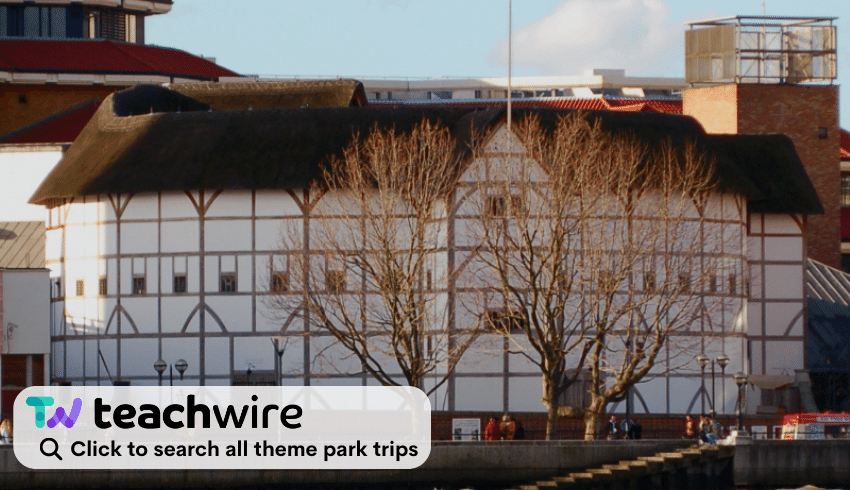
Galloway School Tours
Did you know your local coach operator may be able to organise a complete day out? This includes travel and attraction tickets.
East Anglian operator Galloway School Tours , for example, offers packages for groups looking to visit London’s West End.
Using its extensive experience and network of contacts, Galloway can provide schools travelling from East Anglia a package including travel, show tickets and a theatre workshop.
It’s a great opportunity for students to work with professionals and enjoy top quality entertainment.
Royal Court Theatre
The Royal Court is a leading force in world theatre for finding writers and producing new plays that are original, contemporary and provocative.
Its education programme encourages young people to investigate, enjoy and participate in the craft of making theatre. It opens up the world of the rehearsal room as well as backstage, and offers practical learning opportunities for students.
From study days, production workshops, INSET sessions and community projects, the organisation offers a fascinating insight into the professional process of staging Royal Court productions.
Disney’s Aladdin
Breathtaking sets, mindblowing special effects, over 350 lavish costumes and a fabulous cast and orchestra bring the magic of Disney’s Aladdin to life on the West End stage.
This spectacular show, which is packed full of dancing, music and storytelling, is a fantastic stimulus for creative work. It will inspire primary and secondary pupils alike.
You can enhance your visit with free online resources. These include a nine-part video library.
Or take advantage of a range of pre-show workshops led by Disney Theatrical Teaching Artists. Prepare to escape to a whole new world!
Shakespeare’s Globe
Every day hundreds of students take part in curriculum-linked workshops and lectures at, or delivered, by Shakespeare’s Globe .
Visit with your group and you’ll also be able to benefit from an exploratory tour of the theatre.
Workshop options include interactive storytelling sessions for Key Stages 3 to 5. These include a 45-minute performance by a Globe Education practitioner.
Longer study days, exploring topics such as language or contextual influences on performance, for Key Stages 4 and 5, and GCSE study days are also available.
The Globe has extensive experience of working with children with SEN and EAL, too.
Told By An Idiot
Told by an Idiot is an acclaimed professional theatre company and an Arts Council England NPO organisation.
The company has 25 years’ experience of creating exciting, innovative productions and participation projects across the UK and internationally. Venues include north west England’s Manchester Royal Exchange, Theatre Royal Plymouth, Lyric Hammersmith London and National Theatre Wales.
It also offers a range of exciting, highly practical drama workshops for teachers and students. These are led by experienced practitioners who are all professional theatre performers and directors.
Themes include Working with Mask, Devising, Commedia dell’arte and Physical Theatre, as well as CPD sessions for teachers.
The Emmerdale Studio Experience
The Emmerdale Studio Experience takes place at the former ITV studios in Leeds, where selected filming still takes place. It allows students to step into the drama and experience the television production process from ‘Script to Screen’.
The education programme is tailored for Key Stages 2–5. There are links to the national curriculum and exam board specifications for English, film and media studies.
ATG Creative Learning Workshops
ATG’s Creative Learning team understands the value of learning through a creative process and the many ways in which it can engage and inspire students, bolstering the hard work of teachers and their schools.
All of ATG’s group workshops are bespoke. They can be tailored to offer an exploration of any English or drama text, on the GCSE and A Level curriculum or otherwise.
Best of all, students taking part will be working with truly inspiring West End professionals at a competitive cost.
Wicked The Musical
Voted ‘Best Theatre Production for Schools’ by teachers at the School Travel Awards two years running, Wicked ’s topical story of friendship, acceptance, integrity, peer pressure and propaganda is relevant for PSHE and citizenship teaching, and whole-school anti-bullying strategies.
The show is highly pertinent for all students studying BTEC Nationals in Performing Arts, as well as a wealth of additional subjects. The song ‘Defying Gravity’ is also a set work for the Edexcel GCSE Music qualification.
Visit the website for details of the schools’ workshop programme. These are run by current and former members of the cast and creative team.
Curve is a state-of-the-art theatre based in the heart of Leicester’s vibrant Cultural Quarter.
As well as live performances, it offers a wide range of inspiring educational workshops. These are designed to open up the world of theatre and reveal the hidden process of a rehearsal room.
Students are afforded the opportunity to engage more deeply with the artists, subject matter and processes in the theatre’s artistic programme. Links are made to the curriculum.
Mayflower Theatre
Mayflower Theatre delivers a diverse range of creative workshops, theatre tours and events tailor made for schools, colleges or groups. They can take place either at the theatre or at your own setting.
It also supports talks and workshops on a variety of creative careers. Conference-style events for young people explore entering the industry, in particular non-performance based careers. These draw on the expertise within the marketing, sales, technical and FOH departments, as well as industry professionals.
Outdoor activities and experience day trips

Willen Lake
Looking for a trip in central England? There’s no better place than one of Milton Keynes’ most popular destinations, Willen Lake . Whether you’re looking to visit as part of your enrichment programme or as part of an activity day or physical education session, there’s something for everyone.
The land and water-based activities on offer are run by qualified instructors and cater for students aged eight and above.
An extensive range of packages covers everything from a single activity through to a full schedule of multiple activities. Plus, groups of all sizes are welcome.
Chill Factore Indoor Snow Centre
Chill Factore , Manchester, runs an exciting range of unique adventure days based around skills development, puzzle solving and team building, to offer an exciting new alternative to summer reward trips and transition initiatives.
The most popular package, the Chill Adventure Day, gives students an adrenaline-filled indoor adventure experience. Here they can enjoy rock climbing, sledging, tobogganing, snow tubing and ski or snowboard tuition.
Icebreaker Challenge is an indoor, snow-based sports day. Alternatively, the Arctic Explorer Package is a snow-based problem solving break out game.
Stubbers Adventure Centre
Based on a picturesque 130-acre site, Stubbers Adventure Centre is a registered not-for-profit organisation that has helped hundreds of schools provide students with the opportunity to develop social and interpersonal skills and build confidence. This is done through participation in adventurous activities.
The centre offers lots of water sports. This includes kayaking, jet skiing, sailing and raft building. Other activities include archery, fencing, orienteering, laser tag and rifle shooting.
‘The Towers’ section, meanwhile, offers climbing, abseiling, high ropes and zip wire, and motorsports including quad bikes and 4×4 driving.
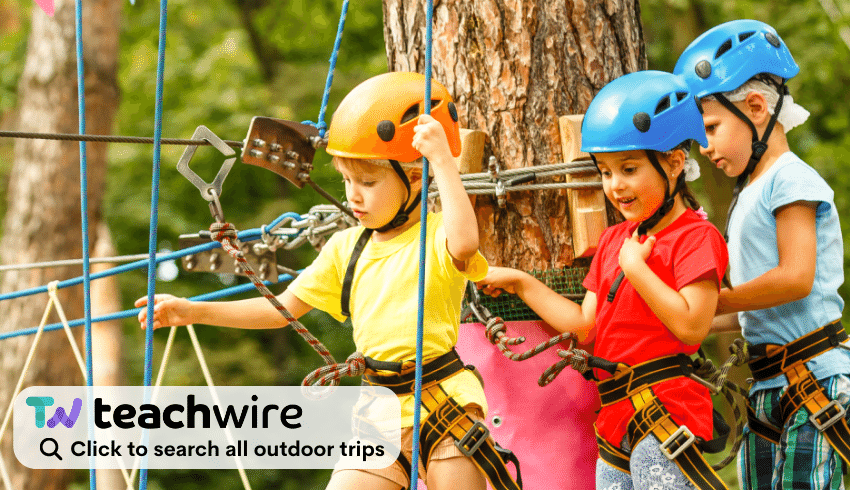
Shropshire Raft Tours
Shropshire Raft Tours offers services to accommodate school trips, as well as facilities to receive coaches in the Wharfage car park where its Little Green Kiosk is based.
Its River Severn Tours are a compelling educational experience, and lots of fun too. Passing through the Ironbridge Gorge, they provide a fantastic opportunity for students to learn the history of the river during the Industrial Revolution. Students will also acquire river safety skills, explore how the Severn valley gorge was formed, and much more.
- Browse hundreds of school trip ideas Check out our directory where you can browse venues and filter them via trip type, subject, location and more.
- Council for Learning Outside the Classroom CLOtC’s website is a trove of information, inspiration, resources and training, including details on how the LOtC Quality Badge accreditation can help you plan your next school trip. It also offers a range of CPD opportunities and the LOtC Mark, for schools that want to demonstrate their commitment.
- Outdoor Education Advisers’ Panel OEAP ‘s National Guidance is a must-read for any teacher planning a school trip. Downloadable checklists and training are available.
- Department for Education View the DfE’s latest health and safety guidance .
- School Travel Forum STF offers information for the organisers of school trips as well research on the benefits of learning outside the classroom.
- Learning Away For help with planning a brilliant residential, visit learningaway.org.uk .
A-Z guide on completing a risk assessment

Download a school trip proposal template

Find a school trip near me
You might also be interested in....
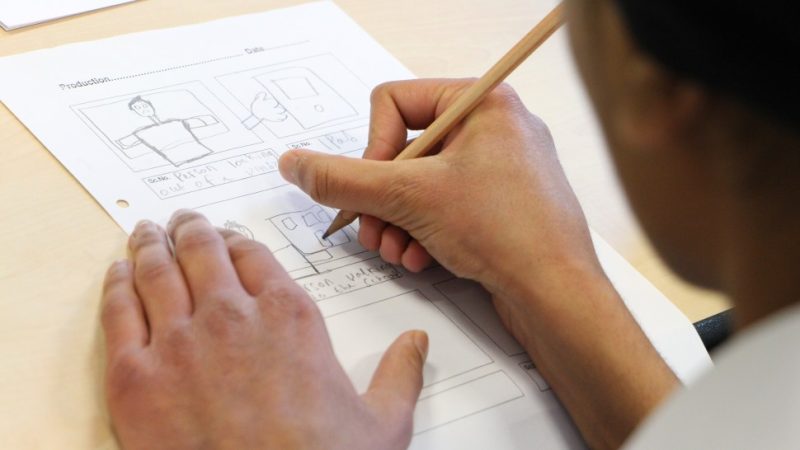
Why join Teachwire?
Get what you need to become a better teacher with unlimited access to exclusive free classroom resources and expert CPD downloads.
Exclusive classroom resource downloads
Free worksheets and lesson plans
CPD downloads, written by experts
Resource packs to supercharge your planning
Special web-only magazine editions
Educational podcasts & resources
Access to free literacy webinars
Newsletters and offers
Create free account
By signing up you agree to our terms and conditions and privacy policy .
Already have an account? Log in here
Thanks, you're almost there
To help us show you teaching resources, downloads and more you’ll love, complete your profile below.
Welcome to Teachwire!
Set up your account.
Lorem ipsum dolor sit amet consectetur adipisicing elit. Commodi nulla quos inventore beatae tenetur.
I would like to receive regular updates from Teachwire with free lesson plans, great new teaching ideas, offers and more. (You can unsubscribe at any time.)
Log in to Teachwire
Not registered with Teachwire? Sign up for free
Reset Password
Remembered your password? Login here

- UK & Europe +44 (0)20 8064 0592 / USA +1 (617) 334 7755 / China +86 139 1651 9541 / Middle East +971 50 867 4801

The Ultimate How-To Guide on Planning a School Trip
Print your customisable school trip planning timeline., when you start planning your annual school trip, the task lists and deadlines can feel overwhelming. at the learning adventure, we help you through the whole process – use our guide’s printable resource below as your own customisable timeline to help get you organised..
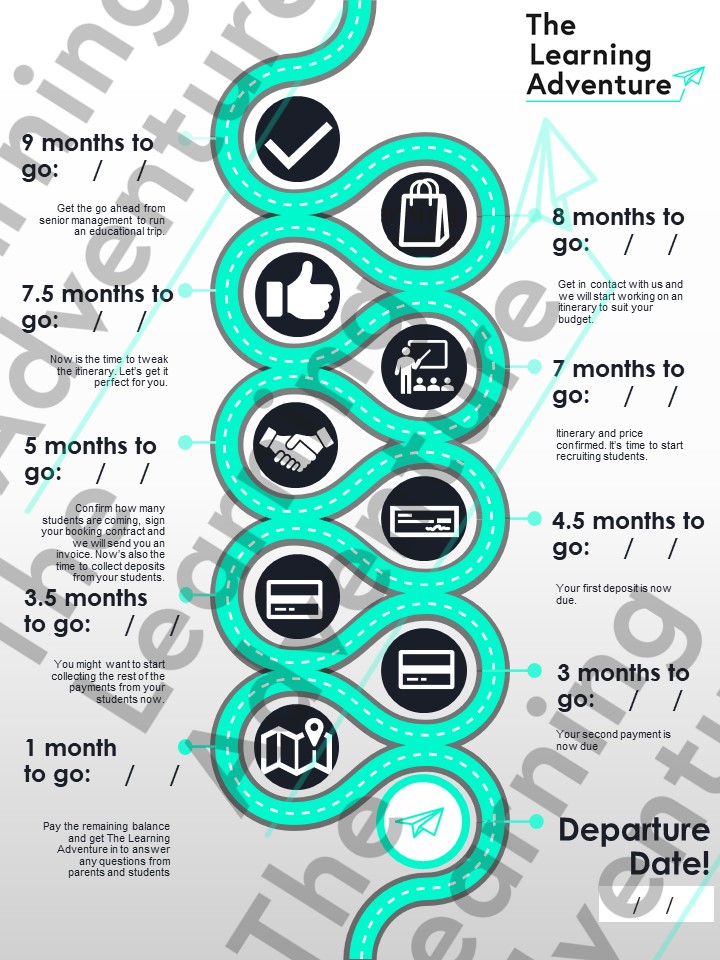
9 months to go : Get the go ahead from senior management to run an educational trip.
Every school has its own procedure – you might already have clearance to run a trip or you might need to ask your manager first.
8 months to go: Get in contact with us and we will start working on an itinerary to suit your budget.
Let us know what destinations and subject you’re looking at and the budget you’re aiming for, as well as how much of a mix between culture and education you’d like. Have an idea of what kind of accommodation you’d like and whether you’d like to book flights with us (we’re ATOL protected). Then, we’ll get going putting together an initial itinerary and quote for you.
7.5 months to go: Now is the time to tweak the itinerary. Let’s get it perfect for you.
We’ll customise your trip to your subject, curriculum, budget and any other needs. Once you’ve got the initial quote and itinerary, tell us which activities you like or don’t like. We want to get it just right and can update the itinerary as many times as necessary. We can also help with any questions relating to visas, insurance, risk assessments or packing lists.
7 months to go : Itinerary and price confirmed. It’s time to start recruiting students.
Spread the word to your students and their parents in class, assemblies, emails and letters home. Highlight the key activities and learning objectives in the itinerary, stress the educational value and give them all the important information, like prices, payment dates and sign-up deadlines.
5 months to go : Confirm how many students are coming, sign your booking contract and we will send you an invoice. Now’s also the time to collect deposits from your students.
This is the most exciting point. You know who’s joining the adventure, exactly what you’re doing and what your students will get out of it. Once you’ve signed the booking contract the trip is officially booked!
4.5 months to go : Your first deposit is now due.
We usually charge 30% of the full amount as an initial deposit. This pays for parts of the tour that need to be booked, confirmed and paid for in advance. This varies from trip to trip though so feel free to chat to us about this– we’re flexible.
3.5 months to go : You might want to start collecting the rest of the payments from your students now.
How you collect payments is up to you and your school. Sometimes, schools prefer to collect the full amount right at the beginning, others collect in two or three installments, and others collect payments from parents monthly.
3 months to go : Your second payment is now due.
This is usually another 30% of the full amount but like the first deposit, we can be flexible so get in touch to discuss this further.
1 month to go : Pay the remaining balance and get The Learning Adventure in to answer any questions from parents and students.
With just 40% left to pay, you are nearly on your way.
You might also want to ask one of our team members to come into your school for a parents’ evening. We can answer any questions that parents have face to face and ensure that everyone gets excited about their upcoming adventure.
Departure Date
This is it. You might be going on a school trip to China , Japan , South Korea , South East Asia , Italy , France or Spain , but, wherever you’re going, your students are up for The Learning Adventure of a lifetime!
Sign up to our mailing list and receive a downloadable school trip planning timeline straight to your inbox!
By ticking the box below, I consent to receiving marketing emails from The Learning Adventure.
For information about our privacy practices, please visit our website.
We use Mailchimp as our marketing platform. By clicking below to subscribe, you acknowledge that your information will be transferred to Mailchimp for processing. Learn more about Mailchimp's privacy practices here.
Related posts

World Book Day 2024

Turing Scheme 2024 now open! Funding for international school trips.
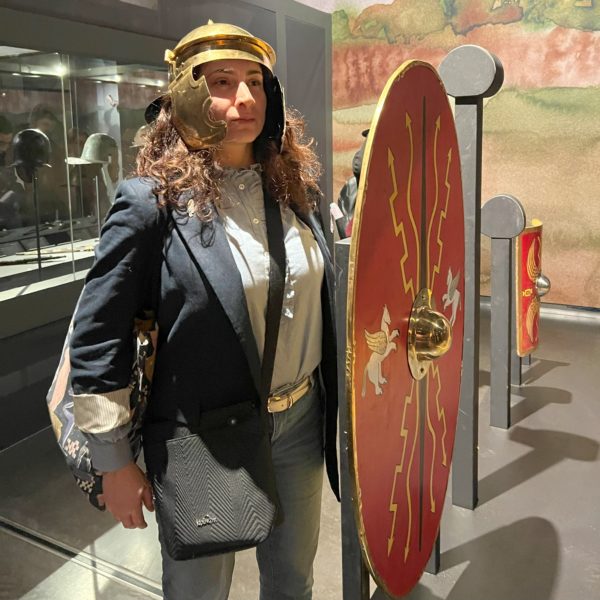
Why Legion is a must see for teachers: ordinary lives in the Roman Empire
School Travel

Getting Started
- Familiarise yourself with your school’s procedure for organising days away, ensuring that you have all of the necessary approvals and forms on hand. To avoid anything from slipping through the cracks, it’s worth going over the administrative process with another colleague.
- Write down the objectives of the visit to convince parents or guardians of its educational (or other) value for their children. Make sure that you ask for written consent from all parents.
- Develop an itinerary and a packing checklist. While this can be time consuming, it’s not if you let us do this for you! You’ll share this schedule of events with parents, students and colleagues.
- Make a list of every pupil attending the trip, and create folders that contain their parents’ or guardians’ written consent, their medical and dietary requirements and other important information, such as their behavioural tendencies.
- It’s always a good idea to visit the location beforehand. At the School Travel Company we can organise an inspection visit prior to the trip, allowing you to conduct risk assessments, try out your chosen accommodation and check out local transport options before your class steps foot off the bus.

Preparing Your Pupils
- Showing pupils a film about the destination
- Having students who went on past trips talk about what they most enjoyed
- Going over the itinerary in class, and – if the outing is educational – highlighting opportunities for downtime
- If applicable, giving them a checklist of items (and/or questions about them) to look out for during their trip, such as historical monuments or flora and fauna. The first person to see everything on the list wins a prize!
Of course, these tips for planning your outing are only a drop in the ocean compared to our experienced team’s wealth of insider knowledge. Whether you’re looking for school trip ideas or already have a specific excursion in mind, we at The School Travel Company are here to lift the logistical weight off of your shoulders. To find out more about our inspiring itineraries, get in touch with us today.
“Bringing the Classroom to Life”
The School Travel Company Blog is a treasure trove of tips and titbits, ideas and inspirations, suggestions and surprises to expect when planning your school trip!
Have a browse through and take advantage of the experience of our expert tour managers.
Need help planning your next trip?
Get in touch.
Call us: 01384 398 893
Email us: CLICK HERE
Take a look at some of our favourite tours…

Cornwall 4 Nights
Request a quote.
Open today, 9am - 5pm
Our opening hours are:
Monday – Friday
Call us: 01737 218 807
Search Discover the World Education
Field trip planning: how to book a great school trip.
Thursday, 10th August 2023
Destination Specialist
A successful school trip depends on how well it’s planned. Our complete guide covers everything you need to know.
Taking lessons out of the classroom and going on a school trip is an excellent way to enhance learning, experience new cultures and learn new skills. But taking large school groups abroad can be a daunting thought. Don’t worry though! Our complete guide will let you know everything you need to get your trip off the ground.
This blog post will cover:
Steps for planning your school trip
How to choose a school trip provider.
Launching your school trip to parents
School trip planning checklist
Tips from our experts
The success or failure of any school trip lies in the planning.
Not only do you want to make sure your trip offers educational value and you achieve your desired learning outcomes, but you also have to think about completing risk assessments, health and safety, securing parental permission, budgeting (and more!)
Here’s how to get started when planning your school trips:
Set clear objectives
First things first, decide what you want your students to get out of the trip. This might be:
- A focus on an area of the curriculum, particular topics or learning objectives
- Combining more than one subject
- Sticking to your budget
- Any specific guidance you’ll need from trip providers
- Specific activities or day trips
Once you’ve highlighted clear goals, it’s handy to write them down so you can keep them in mind throughout the whole planning process.
When you constantly refer back to these objectives, your planning will stay on track.
Choose a destination
Once you understand your trip’s objectives, it’s time to choose a destination.
Certain subjects lend themselves to a particular destination so you may already have somewhere in mind. For example, if you’re studying geography, you may be considering Iceland, but if your students are learning about history and religion, you may be thinking of travelling to Sicily.
Despite this, it’s important to browse all options because sometimes the lesser-known destinations make the best trips!
Choose a date
It’s crucial to allow yourself plenty of planning time. Set a date far enough in advance as this will allow time to promote your trip, complete risk assessments, sign permission slips, and deposits to be paid without any last-minute rush.
We recommend planning a trip around 12- 18 months in advance to allow plenty of time.
Being flexible with your dates is important, too.
Most schools prefer to travel on the first weekend of half-term breaks meaning these dates get booked up fast.
If you have some wiggle room with dates, you’re also more likely to find more pricing options. Another reason to start planning in advance!
Provide educational value
One of the main reasons for booking a school trip is the educational benefits they offer. A study by the Royal Geographical Society found that 82% of KS2 pupils said field trips helped improve their learning.
It’s important to tailor your itinerary to the learning outcomes you want to achieve. Once you’ve set clear learning objectives based on what your students are studying, you can plan activities and day trips that are suited to them.
For example, if you’re learning about geothermal energy, a field trip to Deildartunguhver in Iceland (Europe’s most powerful hot spring) is perfect. But if you’re focusing on team building, you might book water rafting in Norway.
There are lots of ways educational visits can elevate your teaching so knowing what you want to achieve beforehand is essential for effective trip planning.
Compare trip providers
Now you’ve decided on the type of trip you’d like to book, it’s time to decide who to book with.
Comparing trip providers can feel like a minefield, but getting this right will save you lots of stress further down the line. Here are some things to bear in mind when choosing the right provider for you and your school.
Check accreditations
One of the most important things to look for in a school trip company is that they are accredited so that you’re financially protected and will receive a quality field trip.
Here are some accreditations to look for when booking your field trip:
ABTA- We recommend booking your school trip through an ABTA member because the provider will have access to the association’s support and expertise.
ATOL- ATOL (Air Travel Organiser’s License) holders will provide security for the money that you have paid for a school trip.
AITO Assured- The Specialist Travel Association is a British-based travel industry trade group that represents around 120 specialist and independent tour operators.
LOTC quality badge- A LOTC (learning outside the classroom) quality badge is a recognition of safety standards as well as educational visits that meet schools’ academic or pastoral needs. Look for a provider with a LOTC quality badge to ensure your school trip offers educational value and you achieve your desired learning outcomes.
School Travel Forum- Members of the STF ensure pupils experience the most rewarding learning outside the classroom opportunities possible allowing teachers to have confidence in the quality of their overseas school trip
Health and Safety
When planning a school trip, health and safety is a top priority. This should be no different when it comes to your providers, too. One of the benefits of booking your field trip through an operator is that they’ll be able to offer support in a range of situations such as a child being travel sick and needing medical attention , delayed flights, extreme weather conditions etc.
Some questions to ask about the health and safety to make sure your school trip runs smoothly are:
- Do you complete regular health and safety audits?
- Do you have a 24-hour support phone line?
- What are your safety procedures when dealing with emergency situations?
Teacher inspection visits
A pre visit is a good idea when planning school trips as it will allow you to experience the trip for yourself and familiarise yourself with the destination. Choose a provider that offers inspection visits so you can see the highlights of your trip beforehand.
The pre visit is also a chance to complete any risk assessments of your school trip activities.

Flexible itineraries
No two school trips are the same. That’s why it’s crucial that your provider can help you create a custom itinerary that’s perfectly suited to achieving your objectives.
Make sure the company will support you in choosing the best activities that will link to your goals whether it’s an area of the curriculum, team building, a specific subject or a combination of all 3.
Travel experts
Choosing a provider with internal experts on your destination means they’ll be able to suggest activities based on their first-hand experience and tailor your itinerary to suit your learning objectives.
Support and Guidance
Teachers know better than anyone that things don’t always go to plan. That’s why it’s important to have a provider that’s able to support you should anything not quite go as expected.
Whether a student is travel sick, someone’s lost their passport or an activity has overrun, having a supportive provider that offers you guidance will put your mind at ease.
Your provider should support you from your very first booking right up until you return home. Some good indicators of a supportive provider are:
- They offer 24-hour telephone support
- There is good communication from the first enquiry
- They have clear procedures in place
- They complete regular health and safety audits
- They can offer advice about creating an itinerary that suits your needs
Launching school trips to parents
Once you’ve decided on a destination and travel provider, it’s time to get everyone on board! It’s essential to create a buzz around your school trip so that students want to sign up.
The first step to achieving this is launching the field trip to their parents.
Here’s everything you need to know:
Launch presentations
Mostly, schools will opt for a launch evening where you can invite parents in and share all the details about the trip. This presentation is a great chance to communicate your objectives for the field trip along with how this will benefit your students.
Some providers can support you by joining you for the presentation and being available to answer any questions.
Keep parents up to date
Once the parents are on board, it’s essential they’re kept up to date about the school trip. Make sure you clearly communicate with them to keep your trip planning on track.
Parents need to know:
- Where you’re travelling to and from
- Dates and duration of your school trip
- Details of your itinerary and planned activities
- How much the trip will cost (we recommend factoring in some contingency before setting the final price)
- Details around health and safety and risk assessments
- A kit list including everything their child will need to take on their school trip
- Contact information for a staff member on the trip
- Transportation arrangements
- Permission slip deadlines
- Payment deadlines
- Passport and visa advice
- How the school trip links to their child’s education
Permission slips and letters
Permission slips and letters are essential for any field trips, residential trips or school trips.
Not only do they help keep parents updated but, you must get written consent from a parent or guardian before a student can go on any school trip.
Here’s what to include in a permission letter for educational visits:
- The destination you’re travelling to
- Key dates and times
- Key travel arrangements including students’ drop-off and collection
- Purpose and objectives of the field trip
- When and how they can express interest in joining the trip
- Final date for payments due
- Details of arrangements should the trip be cancelled
Download our editable template.
How to raise money for your school trip
There’s no denying the educational benefits of an overseas school trip, but they are more expensive than a local field trip.
Understandably, parents may worry about paying for their child’s school trip. This is why schools often help by raising money to contribute towards the trip.
Discover more top tips for running a cost effective trip here .
School trip planning: Checklist
As you can see, there’s lots to think about when booking your next school trip! This handy checklist covers everything and you can use it as a reference for any upcoming field trip or educational visits:
Pre-booking
Check which teachers are available for the trip
Check individual budget per student
Check deposit cost per student
Choosing a provider
Check what’s included in the price and any additional costs
Check their accreditations
Read their policies and procedures
Choose your trip activities
Book a teacher inspection visit
Send out permission forms
Post booking
Create a payment plan including a schedule for deposits and other payments
Get insurance for students and teachers
Check student’s visas and passport information
Share a kit list with students
Our top tips for booking your next school trip
We spoke to our Travel Specialists for a little extra advice!
“It’s good to start planning your school trip in advance. The earlier you book, the better availability for flights and activities! I would advise teachers to start planning a trip 18 months before they want to travel as it gives you lots of choice and time to organise and for parents to save. It’s also worth looking for a provider that offers a loyalty scheme so you can earn money off vouchers towards your next booking.”
Sonia Stephens, Senior Travel Specialist
“Comparing quotes can be tricky because you may be enquiring a year or more in advance and so the quotes you receive are often based on estimated prices for your time of travel, or they may be based on current prices and it’s not always clear. It’s also worth checking what’s included in your quote, for example does it specify an airline and departure airport, is it based on half or full board, is air passenger duty included for applicable passengers, is the location of the accommodation best suited for your itinerary and are there enough activities included each day to help you get the most out of your trip. It’s a good idea to speak to your experienced travel specialist so they can help you to compare quotations, to help you get the best value and best experience possible for your students.”
Sarah Rimmington, Head of Customer Success & Growth
“My number one tip is to plan as far ahead as possible, especially for busy times of the year like the UK school holidays and May- September. It’s also good when schools have some flexibility with dates to help get availability if they are planning closer to the time of travel. I’d also advise teachers to have a backup waitlist of students for your trip. This allows for a number of changes or students, which helps with any unexpected number changes between booking flights and departing on their trip.”
Marie Burr, Senior Travel Specialist
Booking a trip? Our experts are here to help.
Get in touch
Popular blog posts
Where to visit a volcano: our guide to exploring the world’s most popular volcanoes.
What are your favourite volcanoes? We have picked ten very different volcanoes you can visit with us, from the Azores to New Zealand.
10 Air Travel Tips For Effortless School Trips
We asked former teachers and current group tour leaders for their advice on how to make your journey as smooth as possible, from Departures to Arrivals.
Experience Iceland – Classroom Ideas
How to use our new GIS video map - GIS Iceland
Why You Should Visit West Iceland
A day or two in the West fits in nicely to a 5 day itinerary including the Golden Circle highlights so you don’t have to choose between them.

Get A Quote
- Number of children *
- Do you know when you'd like to visit? Date Format: DD slash MM slash YYYY
- Any special requests?
- Name * First Last
- Your School *
- Your Name *
- Contact Telephone Number
- Your Email Address *
- Your Message
Leave a review
- Date of visit * Date Format: MM slash DD slash YYYY
- Testimonial *
- Terms and Conditions
- Why use TeachOut
- Planning Your Trip
- Risk Assessments
- Funding Opportunities
- Special Needs Planning
- Browse educational providers
- Browse Activities
- Why choose TeachOut
- Tips for Attractions
- Exciting Education
- News & Social

- Booking Transport

Planning your trip
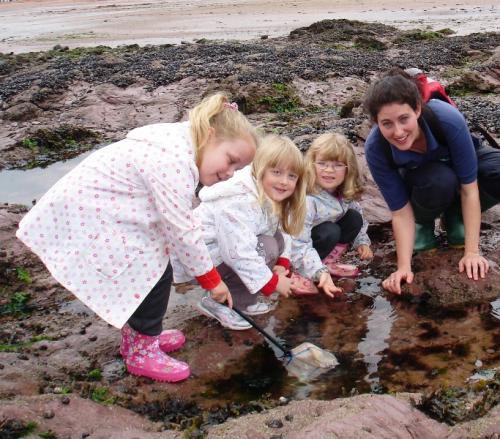
This page offers help and guidance with planning your trip. You can click on the links below to skip to the relevant sections:
- Planning a School Trip checklist
Accredited providers
Information that parents will require prior to the school trip, useful links.
Safely managed educational visits with a clear purpose are an indispensable part of a broad and balanced curriculum. They are a fantastic opportunity to extend the learning of all pupils, including an enrichment of their understanding of themselves, others and the world around them. They can also be a catalyst for improved personal performance, promote a lifelong interest and, in some cases, lead to professional fulfilment.
As always there is a need for planning, including a risk assessment . The key aims are to establish the proposed learning outcomes of the activity and to select an effective method of evaluation. With effective planning, the trip can be as valuable as other learning opportunities within the school and maximise the well documented benefits of learning outside the classroom.
Throughout the planning process of a school trip, teachers need to foresee and evaluate risk to ensure the children and the environment that surrounds them can co-exist safely. You can read more on our Risk Assessment pages.
Planning a School Trip: checklist
- Before planning a school trip, make sure you have read and understood the school’s and the LEA’s policy on school trips
- Follow the school’s procedures and ensure you are aware of your legal and moral responsibility as group leader
- Next, search for local out-of-school education venues and providers here .
The following questions or considerations may help you to plan the trip:
- What is the total individual budget for the trip?
- What additional costs will be associated to the trip?
- Will food be included in the cost?
- Are the insurance arrangements suitably sufficient for the trip?
- What will be the payment procedure for the trip?
- How much deposit is required from each pupil?
- Does the venue/provider offer pre-inspection visits?
- Is the trip suitable for all students?
- What staff will be available for the trip?
- Will a member of accompanying staff have a relevant first-aid certificate?
You can also visit the Council for Learning Outside the Classroom (CLOtC) website for information about providers accredited with the Learning Outside the Classroom (LOtC) Quality Badge.
The CLOtC is the managing and overall awarding body for the LOtC Quality Badge, which recognises providers offering good quality learning outside the classroom and managing risk effectively. They are responsible for:
- Influencing and challenging learning outside the classroom policy and practice
- raising the profile of learning outside the classroom and promoting the benefits
- providing support for education and LOtC professionals, aiming for good quality learning outside the classroom that meets the needs of young people
Supported by the majority of Local Authority Outdoor Education Advisers, the LOtC Quality Badge makes it easier for anyone organising educational visits to gain approval and provides assurance that their chosen destination has met six nationally recognised quality indicators
The LOtC website is an excellent source of information designed to help schools, educational practitioners and other groups plan and carry out inspiring and varied school trip activities. Useful checklists and planning tools for teachers and educators at various levels can be found here .
- A brief overview of the trip, including dates, times, venue, details of staff accompanying the trip and details of the destination
- A clear itinerary including departure and arrival details
- Request for Nationality and Passport details, if appropriate
- Travel arrangement details and approximate duration of travel
- Accommodation details, if appropriate.Details should cover the name, full address and telephone number of the accommodation
- A list of items required for the trip such as clothing, footwear, stationary, waterproofs, books, bags etc.
- A clear summary of the possible risks on the trip
- An overview of the expected conduct of pupils, and a polite notice concerning discipline and appropriate sanctions
- Details about the cost of the trip
- Payment schedule and amounts required by specified dates. Clearly indicate that deposits are non-refundable
- A description of what is, and what is not, covered by the cost
- Recommended additional money needed by each pupil for general expenses
- Date of a parents’ information evening
- Emergency contact name and number at the school and at the venue
- A consent form requesting special medical and diet information and permission to take appropriate emergency measures
You can find expert guidance and step-by-step advice for planning your educational trip on the Outdoor Education Advisor’s Panel website
This is a widget area
Use this area to display any useful messages and links
Sign up to our newsletters
Schools: Send me special offers and tailored visits, workshops and transport options
Education providers: Get notified about visit requests from schools
Join the Teachout mailing list.

Teachout will use the information you provide on this form to be in touch with you and to provide updates and marketing. Please let us know all the ways you would like to hear from us:
You can change your mind at any time by clicking the unsubscribe link in the footer of any email you receive from us, or by contacting us at [email protected]. We will treat your information with respect. For more information about our privacy practices please visit our website. By clicking below, you agree that we may process your information in accordance with these terms.
We use Mailchimp as our marketing platform. By clicking below to subscribe, you acknowledge that your information will be transferred to Mailchimp for processing. Learn more about Mailchimp's privacy practices here.

The Prepared Teacher’s Field Trip Checklist

Download a Printable Version of this Field Trip Checklist
Did I miss something? What am I forgetting? Did I pack that already?
There is certainly no shortage of things for a group leader to remember when preparing for a field trip, especially if the trip lasts several days. Creating a field trip checklist will organize your thoughts and save you from those final moments of panic.
To begin, write down everything you can think that must be completed in the weeks and days before the trip. Separate the items on the field trip checklist into two categories: things to do and things to pack. Then, divide these items by targeted completion date. Save an electronic copy of your field trip checklist for future reference.
We created our own list to help you get started.
Field Trip Checklist
The week before (minimum).
- Submit need for subs/coverage to school office.
- Submit instructional plan for students not attending the school trip.
- Submit names and cell phone numbers of all faculty and chaperones attending the school trip.
- Distribute list of students who will be attending the school trip to all faculty (including attendance office) and include the times you are leaving/returning.
- Notify Health Office of students participating and review medication needs. Will a nurse be attending your trip?
- Verify that trip is on the school field trip calendar.
- Notify cafeteria of the number of students going on the trip.
- Submit copies of signed permission slips to school office.
- Submit copies of volunteer/chaperone form to school office for all non-faculty members attending the trip.
The Night Before
- Set your alarm clock
- Send out a final reminder to parents about the meeting time and location (by automated call service, email, or text message).
- Communicate with your tour leader to confirm meeting time and location.
- Check the weather forecast.
- Gather any maps you would like to have on hand.
- Charge your cell phone.
- Charge your camera battery.
- Completed Parent Permission Forms
- Completed Medical Waiver Forms
- Emergency Contact Information for Each Student
- Lanyards and Lanyard Name Tags for Each Student
- Sharpie Marker
- School Trip T-Shirts (if applicable)
- Extra Copies of the Itinerary
- Extra Copies of the Rooming List
- Extra Copies of the Bus Roster
- Camera (confirm batteries are charged)
- Cell Phone Charger
- Scholastica Travel Emergency Line: 1-800-245-3511
- Tour Leader Cell Phone Number
- Bus Company Number
- Chaperone Cell Phone Numbers
- Bus Leader Bags ( Provided by Scholastica) Packed with These Items
- Bottled Water and Snacks for the Bus (for You)
- Entertainment for the Bus (for You) – Book, iPad, Magazine, etc.
- Weather Appropriate Clothing
- Hat/Gloves/Scarf
- Umbrella / Poncho
- Sunglasses / Sunscreen
- First Aid Kit
- Prescriptions
- Spare Lenses/Contacts
- Light Stick – for students to easily find you during evening touring.
The Morning of the Field Trip
- Review assigned chaperone group s with students
- Review rules for behavior with students
- Review that day’s itinerary with students
- Confirm that students have the cell phone numbers of their assigned chaperone and the group leader.
- Introduce yourself (as the person in charge) to all adult chaperones attending the school trip.
- Provide each of the chaperones with a Bus Roster with their students’ names highlighted.
- Confirm that each chaperone knows their assigned bus number.
- Claim your front row seat on the lead bus.
- Give packed bus leader bags to bus leaders
- Take roll and count students before leaving school.
- Make note of “no-shows” and make necessary calls to the principal and parents.
- Call or text tour leader to inform them of your ETA.
- Save a seat in the front row for the tour leader, preferably on the side where the microphone is located.
Ready to get started planning your school trip? Click the button below to get started!
- Request More Information
Previous Post Washington DC Attractions Requiring Advance Group Reservations
Next post what to do if a winter storm threatens your school trip, one comment.
[…] The Prepared Teacher’s Field Trip Checklist […]

601 South Main Street Greensburg, PA 15601 Phone: 724-837-4600 Fax: 724-837-4664
- Guidelines for Chaperones
- Make A Payment
- Planning and Organizing
© 2024 Scholastica Travel Inc..
- Our Promise
- Customer Reviews
- School Field Trips
- Marching Band Travel
- Vacation Travel
- About Leading
- Our Process
- Safety and Security
- Referral Program
- Trip Tool Kit
- Fundraising
- Washington DC Trip Planning

Get a Quote for Your Six Flags New England Trip!

Get a Quote for Your Macy's Day Parade Trip!
This request communicates your interest in receiving a customized proposal and price for a group trip. Group pricing begins at 20 paid travelers.
Prefer the phone? Call 724-837-4600

Get a Quote for Your Cedar Point Trip!

Get a Quote for your Busch Gardens Music in the Parks Trip!

Get a Quote for Your Virginia International Music Festival Trip!

Get a Quote for the Atlanta Trip!

Get a Quote for a Disney Performance Trip!

Get a Quote for the Orlando Trip!

Get a Quote for the Washington D.C. Trip!

Get a Quote for Your Marching Band Trip!

Get a Quote for the Gettysburg and Washington D.C. Trip!

Get a Quote for the Gettysburg and Philadelphia Trip!

Get a Quote for the New York Trip!

Get a Quote for the Philadelphia Trip!

Get a Quote for the Chicago Trip!

Get a Quote for the Williamsburg Trip!

Get a Quote for the Pittsburgh Trip!

Get a Quote for the Boston Trip!

Get a Quote for the St. Louis Trip!

Get a Quote for the Toronto Trip!
- Destinations
- Bowl Games, Parades and Events
- Prestigious Stages
- Group Leaders
- Trip Account Login

How to Plan A School Trip

The school year is now on fast forward. You have a curriculum to cover, testing to complete, and a million tasks waiting on your desk. Oh- and it’s time to think about next year’s class trip! Relax… we’ve got you covered with five easy tips to get you started. Here’s how to plan a great school trip.
1. Choose Your Destination and Travel Dates
Decide where you want to go with your group. Are you traveling for the curriculum? Performance? Fun? There are tons of great student destinations (link to destinations page) to meet and exceed your travel expectations.
Boston makes an ordinary history lesson extraordinary with unique tours and “revolutionary” attractions.
Cleveland is picking up “STEAM” with science groups.
Orlando is a premier performance destination for bands, orchestras, and choral groups. There are so many fantastic destinations your students will love!
Top 10 Student Travel Destinations
Once you know where you’re going, decide when you’re going. The best travel times depend on the specific needs of your group. Consider weather, school schedules, rates, tournaments, etc.
Some destinations like Washington D.C. have lots of student groups in the spring. You may want to think instead of how to plan a great school trip in the fall.
If your destination gets cold ( Chicago , anyone?) you might want to travel in the spring or summer. Some destinations’ rates vary by season as well.
2. Communicate the Details with Parents and Students
Once you’ve figured out where and when you’re going, it’s time to get parents and students on board . According to SYTA’s independent research study 60% of teachers agree that student travel increases a student’s willingness to know/learn/ and explore. What parents wouldn’t want to help their child increase their willingness to learn?
Build excitement for the school trip using social media or hype it in class. See if your trip planner can put together a website just for your trip to send information out to your students and parents.
Plan a parent meeting (and be prepared to answer LOTS of questions!) or see if your trip planner can come and facilitate this! The more information you share, the more successful your trip will be.
3. Set A Schedule
Setting a schedule is one of the most stressful parts of planning a school trip. You may not know when to book attractions, when to take payments or make payments, or when to book transportation. Creating a checklist and timeline will help you manage the process. We’ve included some general benchmarks to help you plan successfully !
4. Make A Safety Plan
I take it back. THIS is the most stressful thing about planning a school trip. It’s a bit daunting to realize you are now responsible for the health and well-being of a group of poor decision-makers- I mean, students. In an age of cell phones and instant communication, parents often know when something goes wrong before you!
A solid safety plan and open communication are the keys to a successful student trip. We can’t guarantee that nothing bad will happen as you travel. After all, Mother Nature doesn’t always care that we have plans, buses occasionally break down or students get sick. The good news is that excellent safety resources are available to help inform you as you create a safety plan for student travel.
The Student Youth Travel Association is a superb place to start. This organization is committed to providing student and youth travelers with safe, rich, and rewarding travel experiences. A Safety Resource Guide and Safety Tips Brochure is available to download.
Creating a clear safety plan and method of communication will go a long way in helping to alleviate that all-encompassing anxiety associated with student travel. Parents will breathe easier knowing there’s a strategy for dealing with the unknown and students will clearly understand the safety procedures.
5. Choose Kaleidoscope Adventures as Your Trusted Travel Partner
If this abundance of information is starting to make you feel more anxious about how to plan a great student trip, RELAX.
Kaleidoscope Adventures can help you simplify the process. KA has been a leader in student trip planning for more than 25 years. Kaleidoscope’s founder and CEO is a former teacher and understands your challenges and time constraints.
The team at KA is accessible, competent, and incredibly knowledgeable. They have the inside scoop on the very best student destinations and performance venues. They’ll work with you to create an itinerary that meets your curricular goals and budget needs.
Planning your student trip with KA is easy and convenient – especially when time is not on your side! Contact Kaleidoscope Adventures today. They’ll handle the details of your school trip while you handle, well, everything else!
Get Started Planning Your School Trip
Choose A Reliable Tour Operator with Professional Memberships
Travel Beyond Expectations with Kaleidoscope Adventures
Fundraising for the Class Trip
Why Kaleidoscope Adventures?
As a leader in the student travel industry for 30+ years, Kaleidoscope Adventures exceeds expectations for student and performance group travel.
We’ll work with you to plan an exceptional travel experience and provide impeccable customer service from start to finish
Related Articles
Ultimate how-to guide for international high school travel, 5 powerful reasons to plan your performance trip to niagara falls, uncover the history of halloween in ancient ireland.
Previous Post

Here’s everything you need to know.
No thanks, I’m not interested!

The Ultimate Field Trip Checklist for Teachers

It is field trip day. Bags are packed, students are on the bus, in their assigned seats, and you realize you forgot to turn in the lunch request forms.
Yikes! Suddenly, all you begin to see is the visualization of the clock striking 12:00 p.m. and the soon-to-be faces of hangry teenagers. The regrets of not just making the checklist you spent more time contemplating making, than actually making, have begun. No worries, here is an extremely helpful teacher checklist to get you going:
- Attendance Sheets
- Permission Slips
- Student Passes/Tickets
- Lunches/ Request Forms/ Allergies
- Emergency Contact
- Chaperone Contact Information
- Bus Driver Information
- Trip Schedule
- Student Medication/ Allergies/ Medical waiver Forms
- First Aid Kit
- Lanyards/ Name Tags
- Submitted plan for Students NOT Attending
- Sent Faculty List for Students on the Trip
- Notify cafeteria of # of absent students
- Final Reminders to parents of meeting time and location, misc. Information
- Pack for the weather forecast & potential changes
- Phone/ Charger
- Copies of Itinerary/ Group information/ Emergency contacts & protocol
Do you need to customize it a little?
No worries, just copy and paste this list into notes on your phone.

Teacher Checklist AST

If you need some other advice, we have new blogs and updates nearly every day to help you with anything you may need.
Check it out.

Written by Angie Velasquez
View all posts by: Angie Velasquez
Related Posts

Are you looking for an affordable, customized group trip?
*Privacy Policy

- +41 (0)27 775 35 90
- [email protected]
- [email protected]

- Typical Program
- New activities
- Additional courses
- Language lessons
- Staff & Safety
- DATES & PRICES
- Ski & Snowboard
- Special program
- Extra courses
- Evenings & Prize giving
- Campus & Location
- Typical day & Equipment
- Ski Trips Japan
- Ski Trips Switzerland
- Field Trips
- Our philosophy
- Sustainability
- Partner hotels
- Work with us
- Live from the Campus
- Inperson meeting
How to go about Planning a Field Trip Checklist
Field trips are not only exciting and academically beneficial, but they also give students great experiences and indelible memories.
Regardless of the benefits, some schools encounter budget reductions. This means that accessing admission to cultural centers, historical museums, and other attraction sites can be almost impossible.
Various tips can help you understand what goes into planning a field trip checklist. In this post we shall discuss:
- How to plan a field trip
- Checklist for teachers and parents to ensure that students have everything they need to make the trip a success
About Field Trips
Many times, field trips are not given proper consideration in the educational curriculum. Today, however, many schools are realizing the importance of field trips and incorporating them into the school program.
Les Elfes offers field trips for students from different parts of the world. There are numerous things for your students to learn at this resort as seen below.

There are various sports activities for the students to engage in. They will learn how to use different sports equipment and gain the confidence to attempt a vast range of sporting activities.
Team Building and Social Skills
Les Elfes organizes field trips that bring together students from across the world. This creates an ideal environment for them to mingle, get to know one another, and make friends. By working together, the students can strengthen their team spirit.
Individual Development
Field trips at Les Elfes are exceptional experiences that help promote both group and individual development.
Can Students Benefit from Attending International Field Trips?
Yes. There are numerous benefits of attending field trips overseas which include:
· Enhanced Self Awareness
The world is fast becoming a global village thanks to the internet. However, experiencing a different country with different cultures and exciting scenery is marveling.
It allows students a better experience than they would achieve from watching videos or looking at photographs.
· Enhanced Cultural Awareness and Appreciation
Going for an overseas school trip enables students to discover and embrace different cultures. They can learn a new language, various customs, and sample a wide range of food options. Further, they get to develop relationships with different people.
· Attempting New Things
Many parents struggle with encouraging their children to try new things. A field trip is an excellent way of getting the kids all excited to attempt new things.
These include: learning a new sport or language, sampling new food, discovering the new country, and discovering different methods of traveling.
How to Plan a Field Trip
Understanding the process of planning a field trip is crucial. Teachers who are preparing to take students for an outdoor learning experience can benefit from this skill. Here is how to go about it.
· Choose Your Preferred Location
Deciding where you want to go can be an arduous task especially if you have various choices. Involve your students and colleagues in assessing and weighing your options.
Consider places that focus on enhancing your curriculum objectives. Further, you need to conduct extensive research to figure out the practicality of your ideas.
Assess the cost involved and the services you and your students will enjoy.
Enquire about their operational schedule. This will help you determine whether they will be open for business when you visit.
Remember, you can always ask your students for their preferred locations and activities they would like to engage in.
· Why Choose Les Elfes?

While Les Elfes is a ski resort, there are various other activities you can engage in. Apart from having trained and experienced staff, there are state-of-the-art facilities designed to maximize your learning experience.
Further, there are stringent safety standards in place to protect each student. You can be assured that your child will be safe throughout the trip.
Located in Verbier, one of the largest and most popular ski areas in Switzerland, numerous students visit the resort every year.
Guides will help students to navigate their way through the expansive resort.
· Plan
Planning is a crucial step if you are to achieve a successful field trip. What’s more, you will need to exercise caution when planning a field trip checklist to ensure you have all your essentials.
Often, student-based field trips involve going outside the school compound and discovering a new environment.
Consider the age group of your students and establish what they expect from the trip.
For instance, if you are traveling with young students, consider taking them over to the park. Here, they will have all the freedom and space to engage in their preferred activities.
· Older Children
If you are dealing with older children, chances are that their field trip will be integrated with a particular learning goal. For these trips to succeed, you should work harder to collect the required materials, to facilitate activities.
You will also need to:
- Obtain approval from the administration
- Visit your preferred location beforehand to assess the area and designate different places for your planned tasks, and
- Come up with a program of activities
Prepare Your Students for the Trip
Studies suggest that students will learn more from a field trip if they can relate it with classroom lessons.
Are you dealing with older students? Try to incorporate activities relating to the field trip in some of your lessons before the trip.
Establish various trip-related activities that you and the students will use on-site or during your post-trip practice.
Where possible, create a video detailing the location you will be attending. For the ultimate experience, students shouldn’t carry their gadgets. This way, they will be fully immersed in the activities of the day.
· Lunch

If the students have to carry packed lunch, have them pack it in brown bags that they can easily recycle on-site. This is one way of teaching them how to be responsible when it comes to taking care of the environment.
Proper Dressing
Monitor the weather and ensure the students dress in appropriate and comfortable gear. If you will be going for a one day trip, ensure all students eat a heavy breakfast. You can have them carry snacks to consume before lunchtime.
Ensure Everyone Understands the Rules
Apart from planning a field trip checklist, you should also need to come up with rules for the field trip.
Focus on behavior conduct and discipline during the trip. Make copies of the rules and have the older students sign.
If you are dealing with younger students, train them in advance on acceptable practices during the field trip.
Place the students in small groups and have designated chaperones in advance. Where possible, you can even request their parents to become chaperones to enhance student discipline.
Exercise Caution when Choosing Your Chaperone

You won’t be everywhere to monitor the students. This is why you will need trustworthy chaperones.
Send them letters requesting for their volunteering services in advance. Follow up-to confirm attendance before finally including them in your list.
Try to have three extra chaperones to act as backups just in case one fails to show up. Take the chaperones through an orientation process to ensure they are conversant with their responsibilities.
Discuss what you expect from them and make sure they are up to the task. Finally, ensure each chaperone has:
- Name tags for all students and fellow chaperones
- Enough label grocery bags that they can utilize to carry lunch and other items for their group
- The rules, itinerary, a list of all students in individual groups, and the field trip organizer’s phone number
Planning a Field Trip Checklist for Teachers and Students
Whether you are a teacher or a parent, planning a field trip checklist helps you know the things you need.
The checklist comes in handy to ensure that you and your students have everything you need for the field trip. Many people struggle with planning a field trip checklist.
Here are checklist examples to make the process easier.
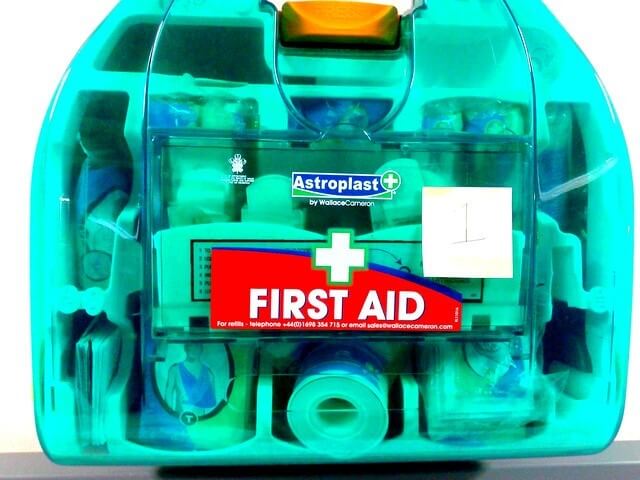
Often, teachers are tasked with planning the field trip. This checklist will come in handy to ensure that you don’t forget crucial things.
What to pack
- Dated and signed permission slips
- Lunch cards or packed lunch
- Enough money to cater for the trip’s expenses. You can either carry the student’s money or have them carry it safely in their bags
- Student and chaperone contact details
- First aid kit
- Allergy forms and first aid kits
- Equipment and gear to cater for sudden weather changes
Teachers should also have:
- Booked the bus and obtained the driver’s contact details
- Presented a plan for the students who will not be attending the field trip
- Prepared a schedule for the trip and sent copies to the chaperones and parents
- Notified the school’s administration about students who will not be attending the trip
Before your child embarks on the field trip, you want to ensure you have packed:
- Lunch if need be
- Pocket money for emergencies and souvenirs
- Appropriate gear to help them cope with the weather change
- Motion sickness medication
- Contact details of immediate family members or guardians
- A camera to capture the moments
Ensure you have:
- Discussed the trip itinerary with the teacher in charge and the chaperones
- Signed the permission slip and given it back to the trip organizers
- Presented your contact details
- Ensured that your children can memorize your phone number
Field trips are not only exciting, but they also help students to interact with new people and learn different cultures. Further, it is the perfect chance to explore different locations and learn new things. As a parent, releasing your child to attend a field trip can be a daunting albeit rewarding task.
One thought on “ How to go about Planning a Field Trip Checklist ”
Best view i have ever seen !
Leave a Reply Cancel reply
Your email address will not be published. Required fields are marked *

17 Positive Aspects to Spend a Week Without a Phone at Winter Camp
Monday 8th, april 2024, sunday 7th, april 2024, saturday 6th, april 2024, subscribe to our newsletter.
You can subscribe to our newsletter to get to know about our latest products and exciting offers.
- Tips For Parents
- Travel Arrangements
- How to Reach the Campus
- Work at Les Elfes
- Representatives/agents login
- P.O. Box 174 1936 Verbier, Switzerland
- 0041 27 775 35 90
This website uses cookies to improve your experience. We'll assume you're ok with this, but you can opt-out if you wish. Read More
- Always Active Necessary Necessary cookies help make a website usable by enabling basic functions like page navigation and access to secure areas of the website. The website cannot function properly without these cookies.
- Marketing Marketing Marketing cookies are used to track visitors across websites. The intention is to display ads that are relevant and engaging for the individual user and thereby more valuable for publishers and third party advertisers.
- Preferences Preferences Preference cookies enable a website to remember information that changes the way the website behaves or looks, like your preferred language or the region that you are in.
Choose Signup Option
- WordPress.org
- Documentation
- Learn WordPress
- Members Newsfeed
Field Trip Checklist
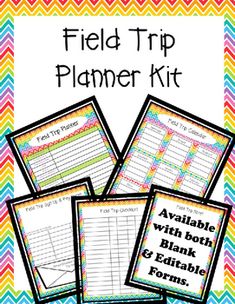
Heading out of the classroom and into the world, field trips are an exciting opportunity for hands-on learning and exploration. However, ensuring they go smoothly requires careful planning and organization. This comprehensive checklist will help educators, chaperones, and participants be fully prepared for an educational and enjoyable trip.
Pre-Trip Preparations:
– Obtain necessary permissions and paperwork from school administration.
– Prepare and distribute permission slips for parents or guardians to sign.
– Develop an itinerary with timelines including departure, arrival times, and scheduled activities.
– Arrange transportation and confirm details a few days before the trip.
– Book any tickets if visiting museums, parks, or historical sites with entry fees.
– Ensure adequate adult supervision; this might mean recruiting parent volunteers as chaperones.
– Gather a list of all participants’ emergency contact information, medical needs, and allergies.
– Create name tags or identification bracelets for younger students.
Packing Essentials:
– First aid kit for minor injuries or illnesses.
– Sunscreen and insect repellent depending on location and season.
– A map of the area or GPS device for navigation.
– Snacks and water bottles—consider dietary restrictions and allergies.
– Appropriate clothing for the weather including extra jackets or change of clothes if necessary.
– All tools or materials needed for activities planned during the trip.
Day Before the Trip:
– Reconfirm details with any visited venues or guides.
– Reconfirm transport arrangements.
– Send reminders to students and parents about departure times and any items they need to bring.
– Charge any electronic devices needed for the trip, such as cameras or tablets.
Day of the Trip:
– Arrive early to organize groups, take attendance, and ensure everyone is present before departure.
– Go over behavior expectations with students, stressing safety rules especially.
– Take head counts frequently, particularly when transitioning from one place to another.
– Engage students in learning experiences by asking questions related to the trip’s educational objectives.
– Collect any distributed materials like worksheets or equipment used during the trip.
– Ensure all students are picked up by authorized individuals if necessary following return to school.
– Conduct a debriefing session with participants to discuss what they learned.
Immediately following these steps will help create a positive experience where learning can be at its maximum. These experiences often leave lasting memories; having a plan ensures they will be remembered fondly rather than marred by any overlooked details.
Related Articles

In the realm of education, fostering a positive learning environment is paramount…

Mindfulness has become an essential part of many people's lives and is…

Sustainability is a crucial topic for today's youth, as they are the…

Pedagogue is a social media network where educators can learn and grow. It's a safe space where they can share advice, strategies, tools, hacks, resources, etc., and work together to improve their teaching skills and the academic performance of the students in their charge.
If you want to collaborate with educators from around the globe, facilitate remote learning, etc., sign up for a free account today and start making connections.
Pedagogue is Free Now, and Free Forever!
- New? Start Here
- Frequently Asked Questions
- Privacy Policy
- Terms of Service
- Registration
Don't you have an account? Register Now! it's really simple and you can start enjoying all the benefits!
We just sent you an Email. Please Open it up to activate your account.
I allow this website to collect and store submitted data.
Sign up to our free trial to preview our library and read up to 3 articles
School trip health and safety: planning checklist and guidance, ahead of a school trip, use our checklist and find guidance to help you feel confident you’ve considered everything from a health, safety and safeguarding perspective., do extra planning and risk assessment for higher-risk trips, take public health guidance into account.
- Use our health and safety checklist to help you prepare
- See further guidance and FAQs
- Use our template for the financial side of planning
You don't need to do a wider risk assessment and extra planning unless the trip carries a higher level of risk. This is because the risks won't be covered by your generic policies and procedures.
The higher risk level could be related to things such as:
- Distance from school
- Type of activity
- A need for staff with specialist skills
Lower-risk trips are those that only include everyday risks, for example slips and trips.
This is explained in the DfE's guidance on health and safety on educational visits .
Find out more, and see examples of template risk assessments in our article .
Carry out risk assessments for trips as normal, making sure they include any public health guidance, such as ventilation requirements, and refer to:
For international
This article is only available for members
Want to continue reading?
Start your free trial today to browse The Key Leaders and unlock 3 articles.
Already a member? Log in

- Charging for educational visits
- School trips: risk assessments
Also in " Transport and visits: health and safety "
Start getting our trusted advice.
- Thousands of up-to-the-minute articles
- Hundreds of templates, letters and proformas
- Lawyer-approved model policies

Planning a School Trip Step by Step Guide
Where to begin.
The most common way for schools to book a school trip is through a school tour operator, who can help take care of your school trip requirements, logistics and planning. Choosing to travel with a tour operator can help students to build their knowledge and cultural appreciation for new and unknown places, whilst creating an exciting and memorable experience.
Before choosing your tour operator, you should think carefully about your budget (what is affordable for parents?) and the dates that work best to avoid clashes with any other school activities. You should also remember to seek approval from your EVC or SLT before continuing with any further school trip planning.
Finding your tour operator
When selecting your tour operator, you should be on the lookout for someone who is a member of the School Travel Forum (STF) and holds the LOTC Quality Badge in order to gain peace of mind when it comes to safety standards. When looking for a tour operator choose someone who is honest with you and that has your learning objectives at heart. You should also choose a tour operator who has the important accreditations – ABTA and ATOL (if you are flying) so you can be sure they are financially protected.
When searching, make sure to consider an operator with great local knowledge , a thorough safety management system, and a personal tour consultant on hand throughout your trip. A good tour operator is one that can take care of all loose ends and create a sense of fun, meaning that teachers can sit back and enjoy the trip just as much as their pupils.
When it comes to requesting prices, make sure you ask for a full written quote from various tour operators to ensure that you are getting the best price possible. Take a look at our comparison table to see exactly what your quote should include.
Approving and promoting your trip
Once you have chosen your destination and tour operator, it’s time to meet with your EVC and SLT to get full approval for your trip. When you have approval, you can provisionally book and start looking into the finer details of the trip.
Make sure to request a full provisional document which states the aspects of your trip that aren’t included in the price. This will help to give an indication of any other charges that may be incurred in future.
When it comes to promoting your school trip to parents, you should make sure to share as much information as possible from the outset. This will help to establish an initial number of students attending your trip. Take a look at the Letters and Templates section of our website for help.
Booking your trip
Once you have received your deposits from parents, it’s time for the fun bit. After confirming passenger details, you can officially book your trip!
As for the finer details, you tour operator should be able to help with this – leaving you to think about creating lasting memories for both you and your students. The Tour Planning & Tools section of our website has a wealth of information, from packing checklists to insurance information and payment planners, to help you get started.
Download your free Planning Guide
We have put together a free planning guide that you can print off to help you plan.
The Ultimate Guide To Planning A School Trip

Organising school trips to other places is a fun but often challenging task. The entire process starts a few months in advance with lots of planning.
Organising school trips to other places is a fun but often challenging task. The entire process starts a few months in advance with lots of planning. You may be tasked with organising something like a historical museum visit or even a year 6 residential trip to Kingswood exploring the great outdoors.
An educational visit is a great opportunity for your primary or secondary school class to see more of the world whilst supporting the curriculum! A key finding from Ofsted was that schools' quality of education was enriched when well-planned, regular trips to local areas and beyond that were linked to the curriculum were planned by teachers.
During the planning stages, you might take into consideration inclusivity, cost and objectives when coming up with ideas. This guide is sure to help you plan and prepare for an exciting school trip effectively. Planning trips shouldn't only be educational, but entertaining too, right?
What are good school trips?
The best kind of trips are ones that are planned to align with the curriculum whilst allowing your class to have fun and bond with each other. It is a good way of boosting the students’ self-confidence, independence and soft skills. It offers young people an exciting opportunity to experience cultural diversity, establish friendships and expand their perspectives.
Don't rush! Start planning early
It's wise not to rush when organising school trips. It's usually a good idea to start planning school trips 12-18 months in advance depending on whether you're planning a short or long trip. Take your time in choosing a school travel company, accommodation (if required) and the itinerary for the trip along with any special requirements for students.
During the early stages of planning a school trip, set your budget and date. This will help you easily research venues, plan the itinerary, organise school travel and inform parents of the trip.
Set your objectives
The purpose of the school trip should be clear from the start as this will define your visit. What do you want the tour to deliver to your pupils? Is the trip being planned to create a deeper understanding of a certain subject, focus on a key area of the curriculum or provide team building and bonding opportunities for your class?
Many schools choose to use a tour provider. If you decide on this route, make sure you clearly communicate the objectives at the start of planning.
Plan the destination
Many locations are perfect for schools and can be enriching to pupils during educational visits, but the final choice comes down to what will give the most value to their learning. Museums allow for easy learning outside the classroom whilst activity centres and sports experiences provide an educational yet fun trip. Use your objectives to plan the school trip and look for guidance, advice and ideas from another teacher or school leader.
Customise your trip
Planning the itinerary is important as it needs to be suited to the needs of the group. You should consider if all students can take part in the activities and whether they will be compulsory or optional. Your trip should be in line with your objectives, so double-check during this step that each item on the checklist includes a resource and venue that hits your goals.
Because you set your budget early in the planning stages, the ideas you have around activities are more attainable. Choose from educational, outdoor or indoor activities that align with predetermined learning outcomes for maximum results.
At Kingswood, we have a huge range of challenges and programmes for pupils of all ages from Woodlands and Waves to Adventure Plus which builds confidence, resilience and life skills.
Prioritise safety
After you've planned your itinerary, it's time to prioritise the safety of the children. Risk assessments are a huge part of every school activity and should be carried out during each stage of the trip from school travel to teacher-related risks. For example, during the school trip, there may be outdoor activities involved. During these activities, you must identify any hazards during your assessment and make sure you have precautions covered.
As the organiser of the school trip, you should complete any generic risk assessment forms that might apply along with any specific to the destination. These will then need to be handed to the school head teacher.
Health and safety should be at the top of your priority list during your school trip. Students must have support for health and well-being whether they are primary-aged or secondary school children. You should also know the parent contact details for each of the students should you need to call them for any reason.
Read up on the government guidance for health and safety on educational trips before you go.
Get guidance from the venue
Before the school trip, you should call the company you're visiting to make sure they understand what you require from them during the tour. They may be able to help you deliver the teaching experience you need for your groups. The staff from the company you're visiting could support your educational goals during the school trip by planning a specific tour or giving you ideas for your checklist.
The company may also give you advice on what to do when you get there and if there is any paperwork that needs filling out.
Plan for everything during school travel
The trip starts on the bus. The travel company you use will be able to give details on the travel time as well as any visits to service stations on the way. This way, you can point out the next toilet breaks to students.
You should take plenty of supplies for students, teachers and parents during the coach trip. Travel sickness is always a risk during travel, so make sure you're stocked up on tablets. Communicate what's needed during travel to parents and students such as water and food so that each group can prepare.
Reflection is important
Make sure you arrange enough time for reflection both during and after your school trip. Whether that's a daily recap over dinner or at the end of the day. Summarising the day's activities and relating them to the subject you are teaching in the classroom is hugely beneficial to the students. You could even ask your students to keep a diary of their experiences during the trip. Seeing their activities, thoughts and feelings written down can be much easier to reflect on after the trip has ended. They can see what they've been learning, maybe even without realising!
When you get back to the classroom, spend some time discussing the tour and the company you visited as well as the activities you did. It might have been some students' first time seeing the world away from their parents, so this is a great time to reflect and reminisce. The class’s visit can be used during their education in a written task to share their learning outcomes with other students.
Be the first to know about Kingswood special offers, new locations and new activities
Learn more about how we protect your personal data by viewing our Privacy Policy
© Kingswood 2022 Kingswood Learning and Leisure Group Limited, Kingswood House, Alkmaar Way, Norwich, NR6 6BF. Company number 03476432. Kingswood Colomendy Limited, Kingswood House, Alkmaar Way, Norwich, Norfolk, NR6 6BF. Company number 05897187.
Designed & developed by Creative Pod

Home » The CAS Trips Guide to Planning a School Trip
The CAS Trips Guide to Planning a School Trip
Planning a school trip here is our cas trips checklist to make travel planning a breeze..
Step 1: Shortlist Your Destinations
Shortlist where you would like to travel based on our global Destinations .
Step 2: Set Up a Consultation Call
Book in a quick 10-15 minute call with our experts to explore the possibilities based on your travel needs and learning outcomes. Alternatively, you can fill out our contact form .
Step 3: Confirm Your Destination & Dates
Confirm your final destination and consult your academic calendar to select your preferred travel d ates. We recommend allowing a 4-6 month planning period.
Step 4: Get Approval
Discuss our proposal(s) and gain approval from your leadership team. Research any government approval and visa requirements you might need depending on where you are based.
Step 5: Spread the Word
Inform the student and parent body about the trip. We can deliver an online presentation and have prepared in-school advertising materials available upon request.
Step 6: Gather Enrollment Fees to Confirm Your School Trip
Set a date for students to pay their enrollment fee. CAS Trips requires a 30% deposit payment to confirm your trip. Please make sure to clearly communicate the cancellation terms & conditions before this final stage.
Ready to start travel planning your student trip?
Check out our destinations here and email us at [email protected] for travel inspiration and planning assistance.
Quick Links
- About CAS Trips
- Reflection Center
- Privacy Policy
- Sustainability
- Student Survey
- Job Opportunities
- Terms & Conditions
- Destinations
- Global Student Exchanges
- Global Student Conference
- Community-Led Service
CAS Trips S.R.O Zahradnickova 1220/20a, Kosire, Prague Czech Republic [email protected] +420 255 71 26 52

- Name * First Last
- Email Address *
- School Name *
- I am a… * Teacher Student Parent
© 2024 CAS Trips. All Rights Reserved.
- Methodology
- Prague Spring
- Lisbon Adventure
- Peru Discovery
- Community-Led Service Trips
- CAS Project Challenge
- Teacher Resources
- I am a... * Teacher Student Parent
- CAS Trips Newsletter Sign me up to receive CAS Trips news and updates
- School Name Name of your school or institution
- I am a... * Student Parent Teacher
Personal Details
- How many members are on your team? * 3 4 5 6
- Team member 1 *
- Team member 1 email *
- Team member 2 *
- Team member 2 email *
- Team member 3 *
- Team member 3 email *
- Team member 4 *
- Team member 4 email *
- Team member 5 *
- Team member 5 email *
- Team member 6 *
- Team member 6 email *
Supervisor Details
Project details.
- What is the name of your CAS Project Challenge? *
- Please mention the specific city *
- Which UN SDGs does your project focus on? (Select all that apply) * SDG 1 SDG 2 SDG 3 SDG 4 SDG 5 SDG 6 SDG 7 SDG 8 SDG 9 SDG 10 SDG 11 SDG 12 SDG 13 SDG 14 SDG 15 SDG 16 SDG 17 You can explore the UN SDGs at www.castrips.org/unsdg
Documentation
Video submission.
- By Submitting your CAS Project Challenge you agree to our Privacy Policy.
- Sign me up to receive CAS Trips news and updates
- International
- Schools directory
- Resources Jobs Schools directory News Search

School Trip Checklist
Subject: New teachers
Age range: Age not applicable
Resource type: Other
Last updated
21 February 2023
- Share through email
- Share through twitter
- Share through linkedin
- Share through facebook
- Share through pinterest

School Trip Checklist - editable Word document
This document goes through a step-by-step of how to organise a school trip. I have had personal experience of planning a school trip and would suggest this works particularly well for day trips. You will be able to tick off elements as you complete them.
Includes ideas about the following:
Please leave a review if you use this!
Creative Commons "Sharealike"
Your rating is required to reflect your happiness.
It's good to leave some feedback.
Something went wrong, please try again later.
This resource hasn't been reviewed yet
To ensure quality for our reviews, only customers who have downloaded this resource can review it
Report this resource to let us know if it violates our terms and conditions. Our customer service team will review your report and will be in touch.
Not quite what you were looking for? Search by keyword to find the right resource:
Book a Free Demo

Sign up for free
Field trip checklist, what is field trip checklist.
A Field Trip Checklist is a comprehensive list of items and tasks that need to be taken care of before, during, and after a field trip. It ensures that all necessary precautions and arrangements are in place, so that the trip runs smoothly, and everyone remains safe and secure. This list can cover everything from packing the right equipment and supplies, to arranging transportation and accommodations, to communicating with the team and providing first aid if needed. The Field Trip Checklist is an essential tool for anyone who is organizing or participating in a field trip, as it helps to minimize the risk of forgotten or neglected items and reduces the stress and confusion that can come with managing a trip.
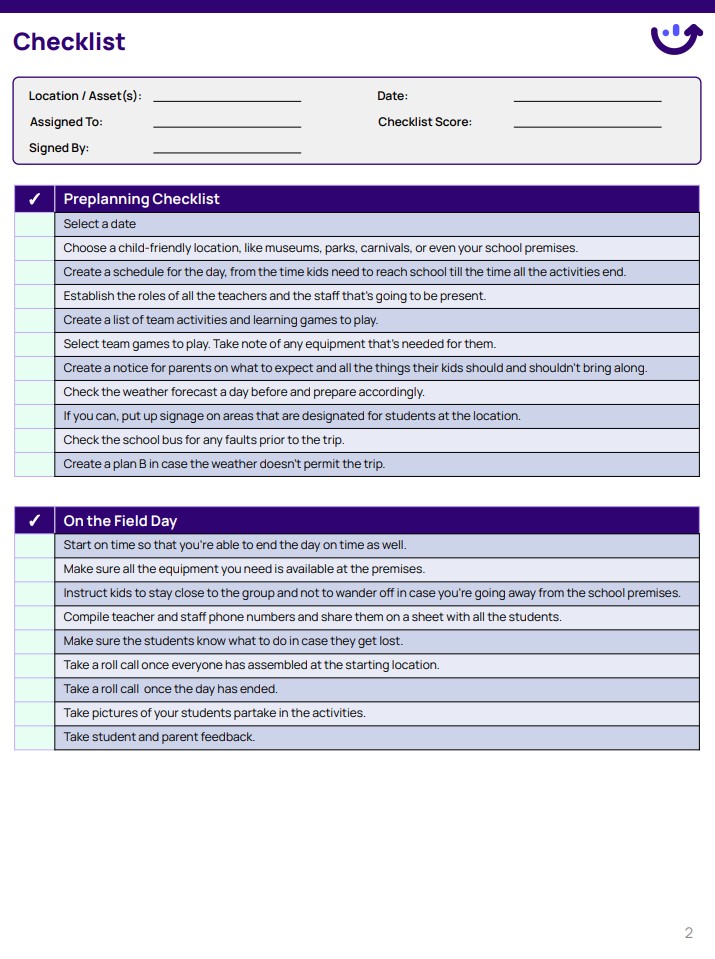
Who use Field Trip Checklist?
A Field Trip Checklist is an essential tool for anyone responsible for organizing, planning and executing a field trip for a group of people. It helps ensure that all necessary steps are taken and important items are not forgotten. Here are some specific use cases for Field Trip Checklists and who it matters to:
- School teachers and staff: When planning a field trip for a school group, teachers and staff can use a Field Trip Checklist to make sure they have everything covered, from transportation arrangements to emergency contact information.
- Tour operators: For tour operators, a Field Trip Checklist helps ensure that each trip runs smoothly, with all necessary equipment and supplies accounted for, and all attendees accounted for throughout the trip.
- Scout leaders: Scout leaders can use a Field Trip Checklist to make sure they have all the necessary equipment and supplies for a successful camping or hiking trip, and to keep track of the group throughout the trip.
- Businesses and organizations: When organizing a team-building or company outing, a Field Trip Checklist can help ensure that all necessary arrangements are made and all attendees are accounted for throughout the event.
By using a Field Trip Checklist, these groups can ensure a safe and successful trip for everyone involved.
Why is it important to have a Field Trip Checklist?
Field trip checklists are important for several reasons:
- Organization: A field trip checklist helps to keep track of all the necessary items and tasks that need to be completed before, during, and after the trip. This ensures that nothing important is overlooked and that the trip runs smoothly.
- Safety: Field trips often involve students traveling to new places, and it's important to make sure that everyone has what they need to stay safe. A checklist helps ensure that all necessary safety equipment, such as first-aid kits and emergency contact information, is packed and ready to go.
- Preparation: A field trip checklist can help teachers and students prepare for the trip by reminding them of what they need to bring and what they need to do to be ready. This can help to minimize stress and ensure that everyone is ready for a fun and educational experience.
- Accountability: Field trip checklists can also help to hold students and teachers accountable for their responsibilities during the trip. This can help to foster a sense of responsibility and encourage everyone to take the trip seriously.
In summary, a field trip checklist is a valuable tool for ensuring that field trips are well-organized, safe, prepared, and accountable.
How to Implement Field Trip Checklist?
Implementing a Field Trip Checklist can be a straightforward process, but it requires careful planning and preparation to ensure its success. Here are the steps to follow:
- Define the purpose of the field trip: Identifying the purpose of the trip is crucial as it will guide the planning process. It will help you determine the objectives, activities, and budget of the trip.
- Identify the attendees: Determine who will be going on the trip and make a list of their names, roles, and responsibilities.
- Create an itinerary : Plan the schedule for the trip, including travel times, stops, and activities. This will help you determine the resources needed for each activity.
- Prepare a checklist: Create a comprehensive checklist of all the items that need to be brought or taken care of before, during, and after the field trip.
- Make arrangements: Arrange for transportation, lodging, and meals if necessary. Ensure that you have the necessary permits and authorization to carry out the activities.
- Conduct a safety review: Evaluate the safety of the trip, including the location, activities, and potential risks. Make sure everyone is aware of emergency procedures and contact information.
- Delegate responsibilities : Assign specific tasks to each person, such as bringing equipment, managing finances, and leading activities.
- Communicate with attendees: Provide clear and concise information to attendees regarding the trip’s purpose, itinerary, and expectations.
By following these steps, you can ensure that your Field Trip Checklist is well-planned and executed, resulting in a successful and memorable experience for all attendees.
Why Use Xenia?
Field trips are exciting, but planning them can be a headache for daycare centers. From managing permission forms to scheduling transportation and making sure all necessary equipment is packed, there are many details to coordinate. This is where Xenia comes in. Xenia is a facility and team management software that can help streamline the process of planning and executing a field trip.
Here are some of the main features of Xenia that make it ideal for managing a field trip checklist:
- Form templates: Xenia comes with pre-built form templates that can be customized to fit your specific needs. For example, you can use a template to create a permission slip that parents can sign electronically, saving time and hassle.
- Task management: With Xenia, you can assign tasks to specific team members and set deadlines to ensure that everything is completed on time. This is particularly useful for a field trip, where there are many different tasks to manage.
- Scheduling: Xenia's scheduling feature makes it easy to coordinate transportation, reserve venues, and ensure that all necessary equipment is available on the day of the field trip.
- Messaging: Xenia's messaging feature allows you to communicate with parents, staff, and volunteers in real-time. You can send reminders, updates, and important information without having to rely on email or phone calls.
- Analytics: Xenia's analytics feature provides insights into the performance of your daycare center, including attendance rates, revenue, and more. This can help you make data-driven decisions about how to improve your operations.
Finally, experience the benefits of streamlined facility and team management with a free 30-day trial of Xenia! At Xenia, we're committed to helping businesses like yours succeed. That's why we're offering a free 30-day trial of our software, giving you full access to all our features, including form templates, task management, scheduling, messaging, and analytics.
During the trial, you'll have the opportunity to see if Xenia is the right fit for your business and get guidance from our customer support team throughout the trial. Our team is always here to help you get the most out of our software and answer any questions you may have.
Sign up now on our website and take the first step towards streamlining your daycare operations with Xenia!
- Template Preview
- Template Description
- Similar Templates
Disclaimer: Our Template Library provides templates that have been designed by our employees to assist you in using Xenia's solutions. However, please note that these templates should be used as hypothetical examples only and cannot substitute professional advice. It is recommended that you seek professional advice to ascertain whether the use of a particular template is appropriate for your workplace or jurisdiction. You should also independently assess whether the template suits your specific circumstances.
Similar Templates

Building Facilities Inspection Checklist PDF
Daily equipment inspection checklist, equipment inspection checklist, monthly equipment inspection checklist, heavy equipment inspection checklist, final building inspection checklist, one app: endless ways to manage your workflow.
Run your whole operation with one easy-to-use app. Start your 14-day free trial today.
Nomadic Matt's Travel Site
Travel Better, Cheaper, Longer
How to Plan a Trip: A Month-by-Month Guide
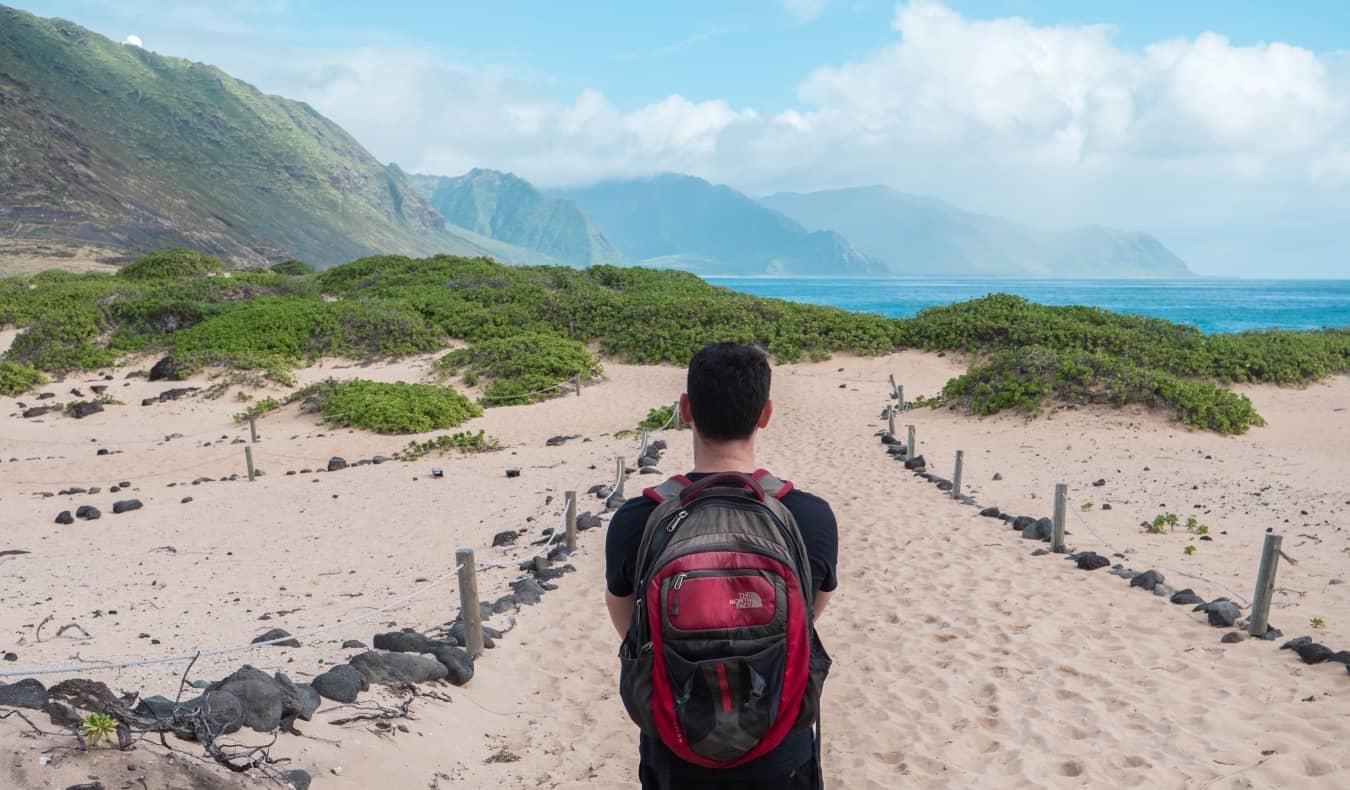
Trip planning can be a daunting task. Flights, insurance, gear, itineraries, accommodation, and so much more all need to be considered and sorted out before you go.
It’s easy to get overwhelmed , especially when you haven’t done something like this before.
After over close to twenty years of traveling the world, I’ve planned countless trips and vacations for myself, friends, and family, even group tours. In the beginning, it was trial by fire. I learned a lot of lessons the hard way . However, that helped me develop an efficient checklist that ensures I don’t miss anything important during the trip-planning process.
One big question I get asked a lot is when to start planning. To answer that question, this post breaks the planning process down into month-by-month steps so you can plan your next trip with ease.
Here’s how to plan a trip:
Table of Contents
12 Months Out: Decide on Your Destination(s)
12 months out: start collecting points & miles, 8 months out: visa requirements, passports, and vaccines, 4-6 months out: book your flight, 3-4 months out: book your accommodation, 2 months out: plan your activities, 1 month out: get travel insurance, 7 days out: pack.

If you already have a dream destination in mind, great! If not, here are some posts to help you get started:
- 11 Cheap Places to Visit on the US Dollar
- 10 Places to Travel on a Budget
- The Best Tropical Islands in the World
- My Favorite Cities in the World
- My 31 Favorite Places to Visit in the USA
But, this far out, the real thing you want to do is start saving money and figuring out your costs. Accommodation and flights are the obvious ones, but how much do restaurants, attractions, and other activities cost? Knowing these costs will allow you accurately estimate how much money you’ll need. Here is how to research costs:
- Buy a guidebook
- Check out my free travel guides (we break down all costs for each destination)
- Skim the cost of living on Numbeo.com
- Google prices for major activities you want to do, such as scuba diving, winery tours, etc. ( Get Your Guide is a good place to start)
- Use Skyscanner or Google Flights for flight prices and sign up for alerts to get emails if the price changes
- Use Discover Cars to price out (and book) a rental car if you need one
- Use Booking.com and Hostelworld to research accommodation costs
That may seem like a lot but you just want to get a general idea of how much you need to save. You can head to this page to see all my articles on how to save money for your trip .
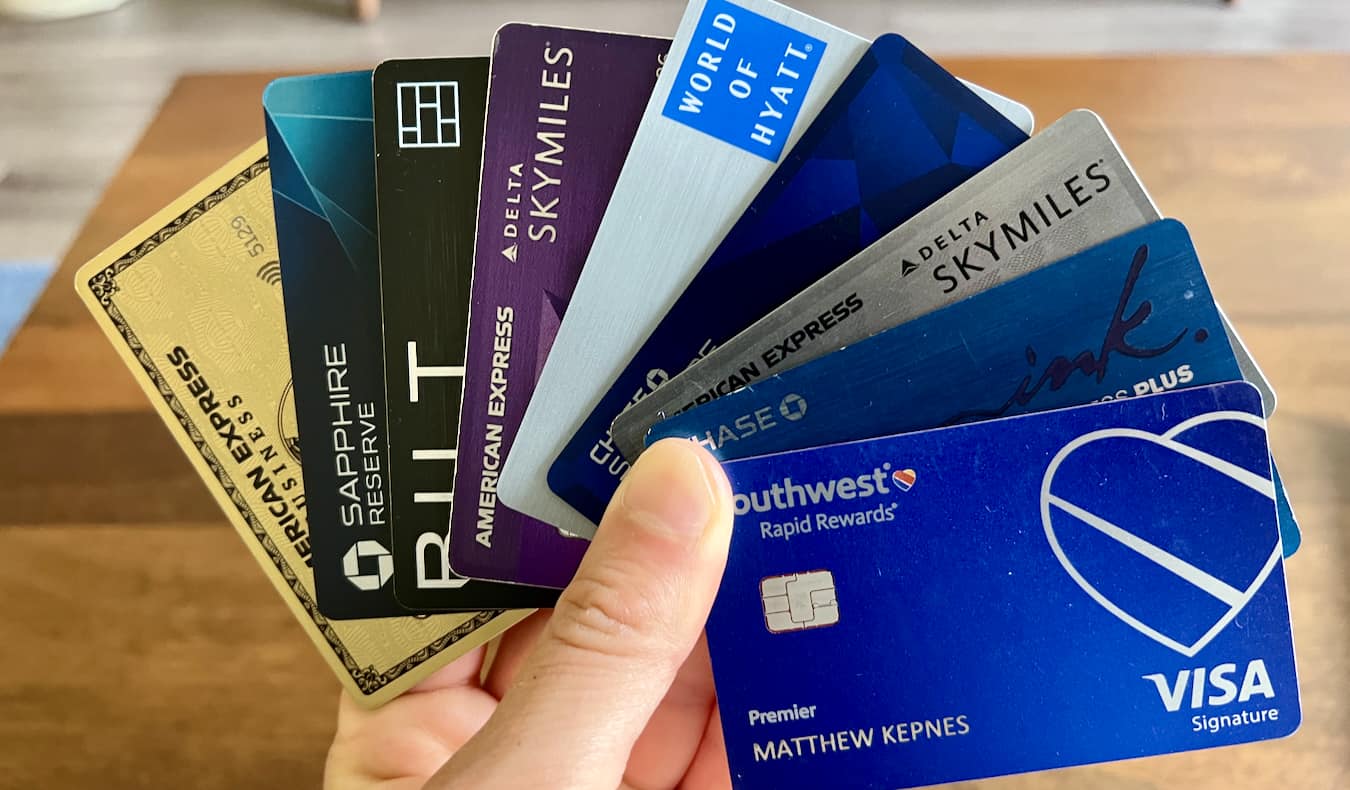
These days, most cards have welcome offers of 60,000-80,000 points (some can be as high as 100,000) when you meet their minimum spending requirement (generally $2,000-5,000 USD within a 3–6-month time frame). That’s enough miles for a free round-trip economy flight to Europe from the East Coast of North America.
For more information on this subject, check out these posts:
- Points & Miles 101: A Beginner’s Guide
- How to Pick the Best Travel Credit Card
- My Favorite Travel Credit Cards
- How to Earn Points by Paying Your Rent
- The Ultimate Guide to Points & Miles
- How to Collect Points & Miles in Canada
In addition, get a fee-free ATM card. I use Charles Schwab, but there are lots of other banks that don’t charge ATM fees (don’t forget to check your local banks and credit unions too). Here’s how you can avoid bank fees while traveling .
While you likely won’t need a visa to your desired destination, you should still check to make sure. If you’re a US citizen, use the State Department’s search tool to learn about your destination’s entry requirements. (Canadians can use this search tool .)
Additionally, make sure that your passport is valid for at least six months after your trip ends. Many countries require this for entry. Passport application and renewal wait times can be long (the standard is 6-8 weeks in the US), so do this as soon as possible.
Also, research if you need any vaccines for your trip as many countries require vaccines to enter (and I don’t mean COVID). You can learn more about country requirements and recommendations at the CDC’s website . They can help you find a clinic near you as well (if you’re in the US).

Here are two articles on how to score a cheap flight:
- How to Always Find Cheap Flights
- 5 Steps to Booking a Cheap Flight
If you’ve signed up for a travel credit card and received your sign-up bonus, use your miles to book your flight and/or hotel. The further out you book, the more availability there will be. Use tools like Point.me and Awayz to help you find the best redemptions on your points (for flights and hotels, respectively).
But even if you aren’t using miles or didn’t find a cheap flight deal, there are still many ways to avoid being the person on the flight who paid the most for their ticket. My two favorite sites for finding cheap airfare are Skyscanner and Google Flights .
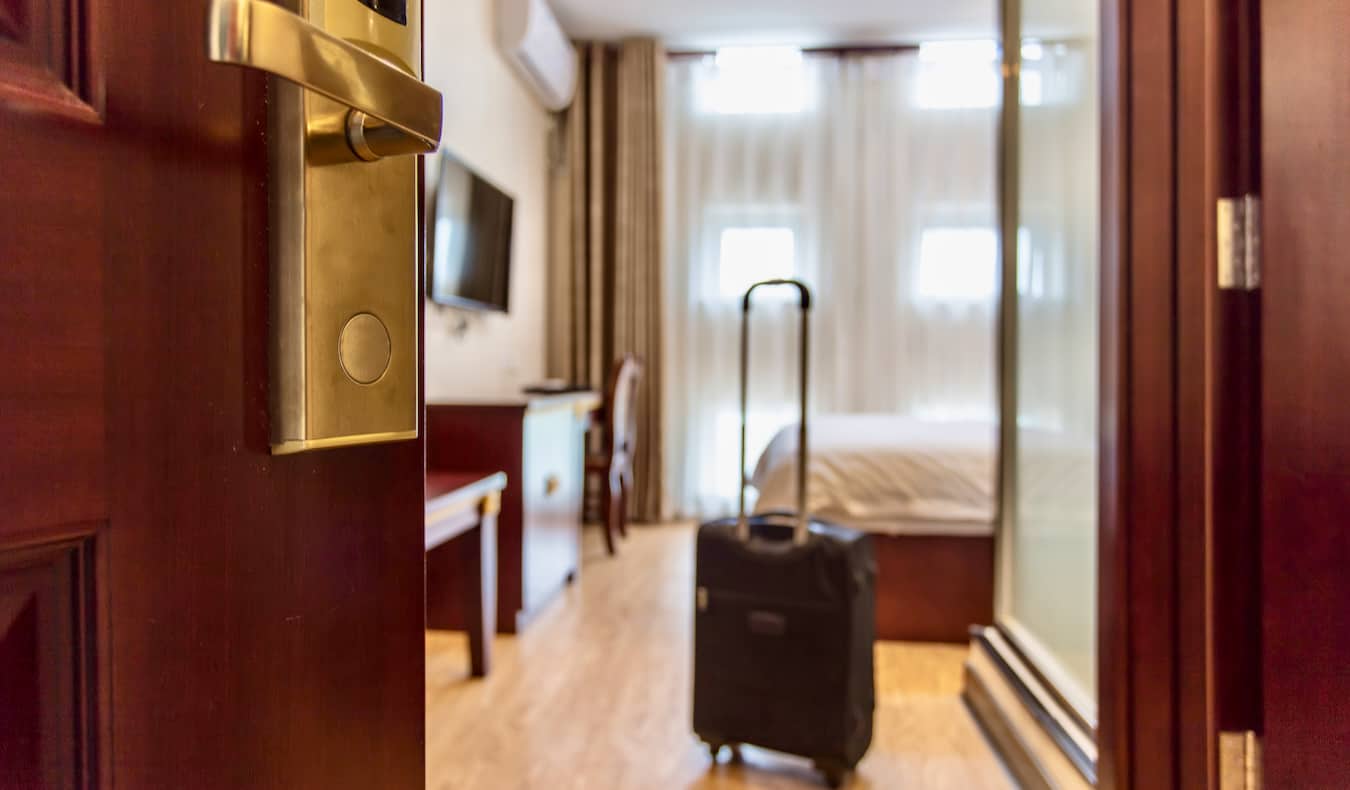
Here are my go-to sites when it comes to finding the best deals on accommodation:
- Hostelworld – Hostelworld has the largest selection of hostels and is my go-to site for finding affordable hostels.
- Booking.com – Booking.com is the best overall platform for finding budget hotels and guesthouses.
- Agoda – Agoda has the best results if you’re heading to Asia (though it sometimes has good US deals too).
I recommend checking the cancelation policy of wherever you book. I like having the flexibility to cancel if something comes up.
If you’re on a tight budget or you want to connect with more locals during your travels, consider joining platforms like Couchsurfing or BeWelcome . These communities allow travelers to stay with residents for free as a sort of cultural exchange.
Long-term travelers can also try housesitting or WWOOFing as well, as they both offer free accommodation (in exchange for pet sitting or farm work, respectively).
Now it’s time for the fun part of travel planning! That means reading books about your destination, learning general travel tips, connecting with online communities, and pre-booking any necessary activities.
Pre-booking ensures you don’t miss out on things that you really want to do on your trip. If you’re going to a popular destination, tours and activities fill up quickly, and if you’re going to a smaller place, activities or tours might only run on certain days and have limited availability.
Either way, Get Your Guide the best place to search for and pre-book activities, tours, and tickets. Local tour operators and attractions can list their offerings on this online marketplace, so you can find tons of stuff here, from food tours to museum tickets with skip-the-line entry.
Get travel insurance . That way, these purchases are protected should something happen that makes you cancel your trip.
A lot of people think, “I’m healthy. I don’t need travel insurance.” But travel insurance is much more than just medical protection. It covers you when your camera breaks, your flight is canceled, a family member dies and you have to come home, or something gets stolen. (That’s why you’ll also want to familiarize yourself with any common travel scams to look out for, as well as how to conduct yourself in order to blend in to avoid looking like a target for petty theft.)
Yes, it’s an added expense. But it’s always better to be safe than sorry. I never leave home without it, because I’ve seen firsthand just what can happen on the road.
I never thought I would pop my eardrum while I was scuba diving in Thailand, break my camera in Italy, or get knifed in Colombia.
Unfortunately, bad things can happen when you’re traveling. True, these events are few and far between. But they can cost tens of thousands of dollars. If you’re not prepared to pay out of pocket, buy travel insurance.
Here are some posts on travel insurance to get you started:
- How to Buy Travel Insurance
- The 5 Best Travel Insurance Companies
- The Best Travel Insurance for Seniors
I never leave home without travel insurance. You shouldn’t either.
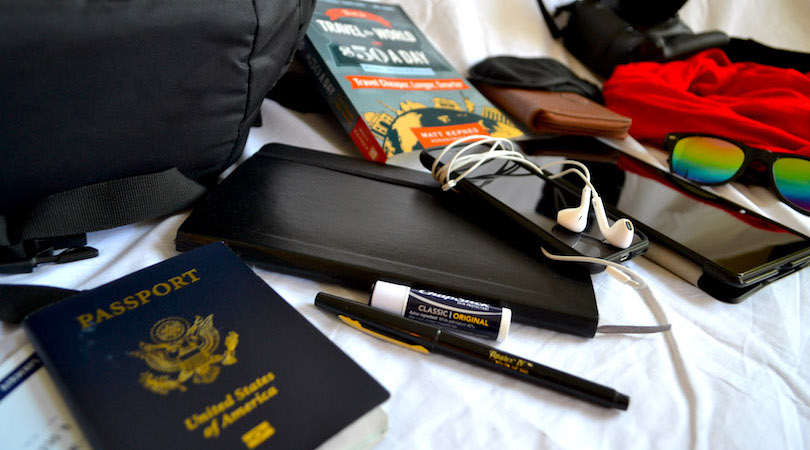
I travel with a 45L REI bag and then a smaller day bag. Here’s my suggested packing list to help you take just the right amount of stuff and avoid overpacking ( here’s a list for female travelers ).
Additionally, bring any prescriptions you need for the duration of your trip. Try not to rely on filling those abroad (though bring a prescription and doctor’s note just in case).
With everything taken care of, it’s time to go on your trip and have fun! Make a list of last-minute items you need to pack the day of (your toothbrush, glasses, phone charger, etc.) and check in online beforehand (you can do so 24 hours in advance). (If you’ve got lounge access through a premium travel rewards card , you might find yourself looking forward to getting to the airport early.)
If you’re feeling nervous, don’t worry. That’s perfectly normal. Feeling anxious or unsure is something every traveler experiences. But you’ve made it this far. Trust your planning and follow your instincts. You’re about to have the trip of a lifetime.
Book Your Trip: Logistical Tips and Tricks
Book Your Flight Find a cheap flight by using Skyscanner . It’s my favorite search engine because it searches websites and airlines around the globe so you always know no stone is being left unturned.
Book Your Accommodation You can book your hostel with Hostelworld . If you want to stay somewhere other than a hostel, use Booking.com as it consistently returns the cheapest rates for guesthouses and hotels.
Don’t Forget Travel Insurance Travel insurance will protect you against illness, injury, theft, and cancellations. It’s comprehensive protection in case anything goes wrong. I never go on a trip without it as I’ve had to use it many times in the past. My favorite companies that offer the best service and value are:
- SafetyWing (best for everyone)
- Insure My Trip (for those 70 and over)
- Medjet (for additional evacuation coverage)
Want to Travel for Free? Travel credit cards allow you to earn points that can be redeemed for free flights and accommodation — all without any extra spending. Check out my guide to picking the right card and my current favorites to get started and see the latest best deals.
Need Help Finding Activities for Your Trip? Get Your Guide is a huge online marketplace where you can find cool walking tours, fun excursions, skip-the-line tickets, private guides, and more.
Ready to Book Your Trip? Check out my resource page for the best companies to use when you travel. I list all the ones I use when I travel. They are the best in class and you can’t go wrong using them on your trip.
Got a comment on this article? Join the conversation on Facebook , Instagram , or Twitter and share your thoughts!
Disclosure: Please note that some of the links above may be affiliate links, and at no additional cost to you, I earn a commission if you make a purchase. I recommend only products and companies I use and the income goes to keeping the site community supported and ad free.
Related Posts
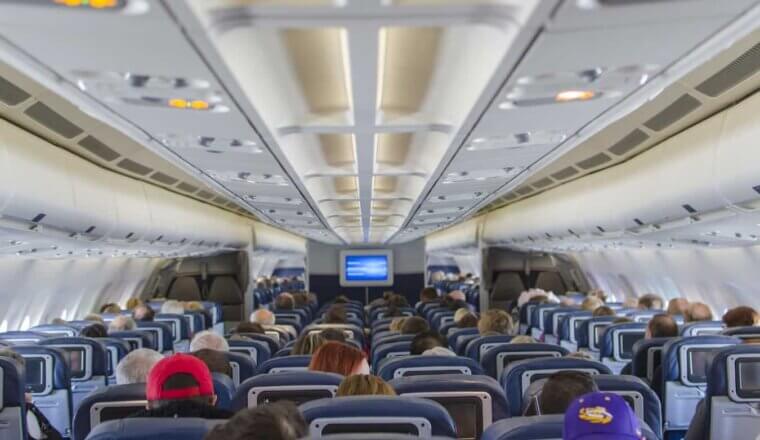
Get my best stuff sent straight to you!
Pin it on pinterest.

IMAGES
VIDEO
COMMENTS
Step two - choose an educational travel partner. Your next step is to select an educational travel partner. Companies like Student Horizons are here to take all the minutiae of planning a school trip off your plate. You will be able to hand over over all of the organisation, admin, bookings and other details.
Planning a school trip can be daunting, but with the right company and a good checklist it can even be enjoyable! Follow this guide and you can embrace the excitement of taking your students anywhere in the world. Start Planning Early. There are numerous things to consider with a school trip, and to ensure the trip runs smoothly it is essential ...
Planning a school trip checklist. The Association of Teachers and Lecturers lays out the following checklist for planning a school trip. Obtain approval from your school and the local authority, if applicable ; Undertake or obtain a risk assessment; Detail staffing, supervision and training needs ;
Plan Your Schedule. Arrange Your Supervision. Create a Permission Form. Decide Who's Allowed To Go. Tie in Your Field Trip to Your Curriculum. These are the steps you will need to cover for your field trip plan. The order of these steps may be different for you, but be sure to think about all of these points. 1.
7. Be Prepared. Something unexpected seems to always happen during the trip. A student forgets something important, you miss a bus, or a group doesn't show up on time. Be flexible when on your school trip, as usually the students are having a great time just being in a new environment.
Scroll down to get your downloadable school trip planning timeline sent straight to your inbox! 9 months to go: Get the go ahead from senior management to run an educational trip. Every school has its own procedure - you might already have clearance to run a trip or you might need to ask your manager first. 8 months to go: Get in contact with ...
Make sure that you ask for written consent from all parents. Develop an itinerary and a packing checklist. While this can be time consuming, it's not if you let us do this for you! You'll share this schedule of events with parents, students and colleagues. Make a list of every pupil attending the trip, and create folders that contain their ...
Roommates and bus (If your group is traveling on more than one bus) assignments. Money and IDs needed (travelers 17 and under can travel with a school ID) Hotel Expectations. Food - your students will want to know what they'll be eating, and in some cases, you'll pre-order your meals.
School trip planning: Checklist. As you can see, there's lots to think about when booking your next school trip! This handy checklist covers everything and you can use it as a reference for any upcoming field trip or educational visits: Pre-booking. Set clear objectives. Choose a destination. Choose a date. Check which teachers are available ...
Planning a School Trip: checklist. Before planning a school trip, make sure you have read and understood the school's and the LEA's policy on school trips. Follow the school's procedures and ensure you are aware of your legal and moral responsibility as group leader. Next, search for local out-of-school education venues and providers here.
Submit names and cell phone numbers of all faculty and chaperones attending the school trip. Distribute list of students who will be attending the school trip to all faculty (including attendance office) and include the times you are leaving/returning. Notify Health Office of students participating and review medication needs.
To discuss your school travel plans further, don't hesitate to get in touch with our team on 01273 648248. You can also fill out our webform, and our school travel experts will get back to you as soon as we can. < Back. Bring the classroom to life with ease with our step-by-step guide, which outlines everything you need for your next school ...
2. Communicate the Details with Parents and Students. Once you've figured out where and when you're going, it's time to get parents and students on board. According to SYTA's independent research study 60% of teachers agree that student travel increases a student's willingness to know/learn/ and explore.
Available on the Plus Plan. Don't miss a beat when planning your next class field trip with this comprehensive printable checklist for teachers! Use this checklist to manage your pre-field trip planning. Check off each item as you progress through your preparation for your class' field trip.
If you need some other advice, we have new blogs and updates nearly every day to help you with anything you may need. Check it out. It's field trip season and we have the perfect teacher's checklist for you! Give us a call at 877.397.5700 today and let us help you set your own field trip up.
Apart from planning a field trip checklist, you should also need to come up with rules for the field trip. Focus on behavior conduct and discipline during the trip. Make copies of the rules and have the older students sign. If you are dealing with younger students, train them in advance on acceptable practices during the field trip.
However, ensuring they go smoothly requires careful planning and organization. This comprehensive checklist will help educators, chaperones, and participants be fully prepared for an educational and enjoyable trip. Pre-Trip Preparations: - Obtain necessary permissions and paperwork from school administration.
You don't need to do a wider risk assessment and extra planning unless the trip carries a higher level of risk. This is because the risks won't be covered by your generic policies and procedures. The higher risk level could be related to things such as: Distance from school. Type of activity. Location. A need for staff with specialist skills.
The most common way for schools to book a school trip is through a school tour operator, who can help take care of your school trip requirements, logistics and planning. Choosing to travel with a tour operator can help students to build their knowledge and cultural appreciation for new and unknown places, whilst creating an exciting and ...
Start planning early. It's wise not to rush when organising school trips. It's usually a good idea to start planning school trips 12-18 months in advance depending on whether you're planning a short or long trip. Take your time in choosing a school travel company, accommodation (if required) and the itinerary for the trip along with any special ...
Check out our destinations here and email us at [email protected] for travel inspiration and planning assistance. A comprehensive six-step checklist for planning a school trip. From selecting your destination to making payments and understanding travel logistics, simplify the planning process with this free guide.
School Trip Checklist - editable Word document. This document goes through a step-by-step of how to organise a school trip. I have had personal experience of planning a school trip and would suggest this works particularly well for day trips. You will be able to tick off elements as you complete them. Includes ideas about the following: Location.
Here are some specific use cases for Field Trip Checklists and who it matters to: School teachers and staff: When planning a field trip for a school group, teachers and staff can use a Field Trip Checklist to make sure they have everything covered, from transportation arrangements to emergency contact information.
Here's how to plan a trip: Table of Contents. 12 Months Out: Decide on Your Destination (s) 12 Months Out: Start Collecting Points & Miles. 8 Months Out: Visa Requirements, Passports, and Vaccines. 4-6 Months Out: Book Your Flight. 3-4 Months Out: Book Your Accommodation. 2 Months Out: Plan Your Activities.